

The Disappointment Engine by Jacob Hashimoto featured in Design Milk

Liz Nielsen is featured in Artsy's feature on contemporary abstract photographers.

Raffi Kalenderian's recent exhibition is featured in Artnet News.

Elise Ansel: Sea Change is reviewed by Alfred Mac Adam for The Brooklyn Rail.

Paul Laster features our booth in his coverage of Intersect Aspen Art Fair.

Karen Wilkin reviews Lisa Corinne Davis: You Are Here? in the Summer 2023 issue of The Hudson Review.

Sebastian Blanck and Isca Greenfield-Sanders are featured in Women's Wear Daily.

Elise Ansel: Sea Change is included in this week's NYC Arts roundup by Observer!

Lauren Nickou reviews Trudy Benson's exhibition Plastic Paintings at Galerie Krinzinger.

Brooklyn Magazine's Vittoria Benzine reviews Markus Linnenbrink's "EVERYTHINGBETWEENTHESUNANDTHEDIRT" as a must-see show this summer.

Listen to Jim Isermann's interview with Brian Alfred for the latest episode of Sound & Vision.

Natalie Frank: The Raven and The Lion Tamer is featured in artnet news.

Jerry Saltz reviews Natalie Frank: The Raven and The Lion Tamer for New York Magazine.

Markus Linnenbrink is interviewed by Brian Alfred for Sound & Vision.

Jim Isermann contributes to Cultured's Pride feature, reflecting on the late Scott Burton.

Rico Gatson: Visible Time at the USF Contemporary Art Museum is reviewed by Tom Winchester for Art Critter.

Bo Bartlett: Earthly Matters at MOCA Jacksonville is reviewed by Tom Szaroleta for The Florida Times-Union.

Beverly Fishman: Something For the Pain is reviewed by Jason Stopa for The Brooklyn Rail.

Lisa Corinne Davis: You Are Here? is reviewed by Barbara A. MacAdam for The Brooklyn Rail.

Lisa Corinne Davis' exhibition You Are Here? is highlighted in Culture Type.

Beverly Fishman's exhibition Something For The Pain is reviewed by Max Lakin in The New York Times.

Inka Essenhigh is interviewed by Katie White for artnet news.

Kelly Beall reviews Beverly Fishman's exhibition Something For The Pain in Design Milk

Inka Essenhigh's exhibition is included in Cultured Magazine + Arkive's NY Art Week Guide.

Inka Essenhigh's current exhibition is highlighted as a "Must-See" in Galerie Magazine this May.

Rebecca Hart's essay on Beverly Fishman is featured in issue 510 of artpress.

Shannon Finley's solo exhibition Aftermathematics at Mies van der Rohe Haus is reviewed by Ingeborg Ruthe in Berliner Zeitung.

Dodai Stewart shares Ryan McGinness' reimagining of the new 'We ♥️ NYC' logo.

Inka Essenhigh is included in Salomé Gómez-Upegui's Artsy article, The New Generation of Transcendental Painters.

David Ambrose reviews Warren Isensee's current exhibition for Whitehot Magazine.

Reporter Jonathan Stringfellow interviews Bo Bartlett for Columbia University's, The Uproar.

Aprik Gornik and her husband Eric Fischl are featured in Cultured Magazine.

Jerry Saltz reviews Warren Isensee's current exhibition for Vulture in New York Magazine.

Warren Isensee is featured as one of Artnet's February "5 Intriguing Artists."

Erin Lawlor is featured as one of Artsy's 5 Artists on Our Radar in February 2023.

Warren Isensee's current exhibition is reviewed by Eli Anapur in Widewalls.

Evan Pricco reviews Daniel Rich's Flat Earth in Juxtapoz Magazine.

Spectral Visions is featured in Galerie Magazine.

Rico Gatson's exhibition Spectral Visions is included in the digital weekly of Air Mail

Rico Gatson is featured on the Cerebral Women Art Talks podcast.

James Siena's solo exhibition at 525 West 22nd Street is reviewed by John Yau in Hyperallergic.

Fiona Rae's solo exhibition at 511 West 22nd Street is reviewed in The Brooklyn Rail.

Fiona Rae is featured in Artnet News' November roundup.

Liz Nielsen's exhibition Edge of Forever is featured by Collector Daily

Norman Bluhm's summer exhibition at 525 West 22nd Street is reviewed by Barry Schwabsky in the November issue of Artforum.

Liz Nielsen's exhibition 'Edge of Forever' is featured in The Wall Street Journal

Enrique Martínez Celaya: The Foreigner's Song is reviewed by Irene Lyla Lee in The Brooklyn Rail

Elizabeth Magill's solo exhibition Flag Iris is reviewed by Millree Hughes in Culture Catch

Richard B. Woodward reviews the Parrish Art Museum exhibtion, 'Joaquín Sorolla and Esteban Vicente: In the Light of the Garden,' pairing the late-career works of two Spanish-born masters who found inspiration in the green spaces of their home.

Brian Alfred interviews Raffi Kalenderian for his podcast, Sound & Vision.

James Siena's upcoming exhibition is featured in the current issue of Art New England

5 Talents From the Artnet Gallery Network We’re Keeping an Eye on as the Fall Season Kicks Off

Spotlight: Cuban-Born Artist Enrique Martínez Celaya Conjures Themes of Identity and Longing in a Show of Allusive Recent Works in New York

Brian Alfred featured in an interview with Shoutout LA.

Enrique Martínez Celaya: The Foreigner's Song is featured in Artnet News' Armory Week exhibition roundup.

Enrique Martínez Celaya: The Foreigner's Song is featured as one of Ocula Magazine's exhibitions to see in New York this fall.

Enrique Martínez Celaya: The Foreigner's Song is featured in this week's Air Mail

Colossal editor Kate Mothes interviews Jacob Hashimoto.

The multidisciplinary artist’s bold and bright works shine a spotlight on the African-American experience and pay homage to some of its historical icons

John Yau's review of Norman Bluhm's solo exhibition is featured in Hyperallergic.

Beverly Fishman is featured in The Detroit News for her exhibition Recovery at the MSU Broad Art Museum.

Lush and enchanting gardens were a continual muse for Spanish artists Sorolla and Vicente whose careers spanned different centuries.

David Carrier reviews DUAL: Lisa Corinne Davis & Shirley Kaneda at the New York Studio School in Two Coats of Paint.

Lisa Corinne Davis and Shirley Kaneda: Different strokes

USF Contemporary Art Museum to open new exhibit

The recontextualization of Wolf Kahn's work will make it more accessible for researches, collectors, scholars, and the general public.

The Lyrical Moment: Modern and Contemporary Abstraction by Helen Frankenthaler and Heather Gwen Martin at the USF Contemporary Art Museum in Creative Pinellas

Brian Alfred in conversation with Maria Vogel in Hii Magazine.

Brian Alfred discusses his new book Why I Make Art in Widewalls.

Michael Reafsnyder's current exhibition reviewed in Air Mail.

Elliott Green's exhibition at the gallery is one of David Ebony's top New York City shows this spring.

Brian Alfred's latest exhibition ponders an Earth void of humans

John Yau's review of Elliott Green's solo exhibition, 'Is It an Artificial Paradise or an Artificial Hell or Both?,' is featured in Hyperallergic.

Castle in the Sky, Danny Ferrell's inaugural solo exhibition at the gallery, reviewed in Juxtapoz Magazine.

8 Fascinating New York Gallery Shows to See in April 2022

By Ayla Angelos

Brian Alfred interviewed on the podcast Art Sense.

By Kevin Perry

By Kara Cox

By Donald Padgett

Tom LaDuke featured in the March 2022 issue of Whitehot Magazine.

April Gornik interviewed by Alex Zoppa and Robyn Rosenfeld on the podcast ARTLAWS.

Danny Ferrell interviewed in Issue 13 of Maake Magazine.

Roy Dowell's solo exhibition at 511 W 22nd Street reviewed in The Brooklyn Rail.

Charities providing aid - and the fundraisers supporting them

Emily Eveleth’s doughnuts: Paintings good enough to eat

Interview: Ryan McGinness on NFTS and the Art World
"Digital art has, up to this moment, relied on materialization and singular playback tools to be appreciated in the market. Not Anymore."
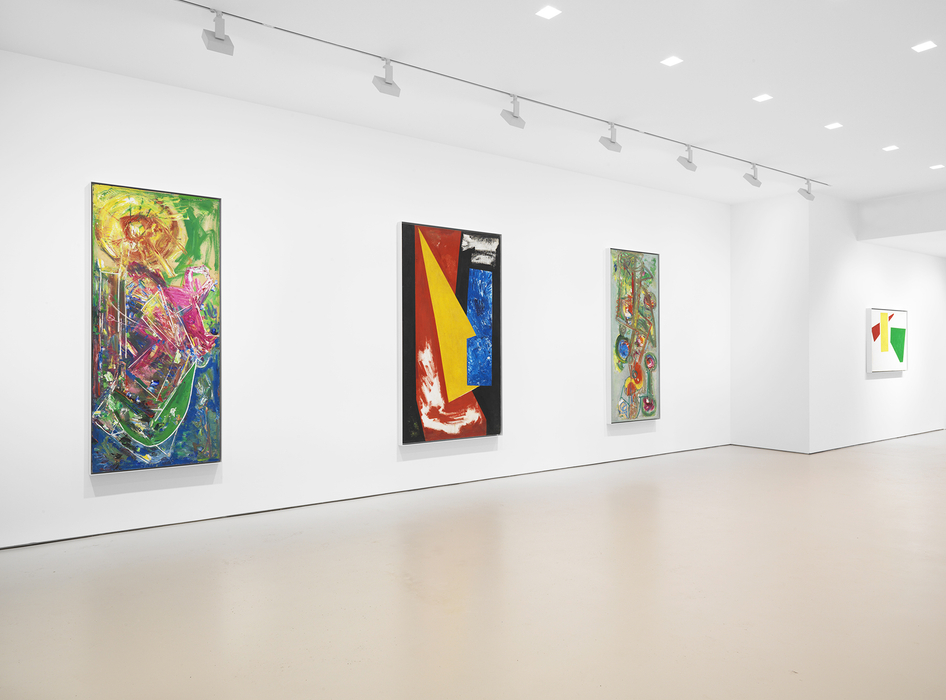
REVIEW: Hans Hofmann’s Chimbote Mural paintings, on view through the 29th of January at Miles McEnery Gallery, clearly articulate Hofmann’s dazzling contribution to the doctrines of Modern Art. Often times, when his name is mentioned in conversation, you might first hear what an important teacher he was, perhaps suggesting his artistic output was not quite equal to his teaching skills. For those individuals, you need to take a trip to 520 West 21st Street, where Hofmann’s true greatness as an artist is in full view.

Liz Nielsen at Over the Influence Los Angeles
The twenty monumental photograms comprising Liz Nielsen’s show here, “I’d Like to Imagine You’re in a Place Like This,” are like mosaics of liquefied jewels. The artist refers to them as “light paintings,” and her early training in painting and printmaking certainly shines through.

Holiday With The Arts In America’s 10 Largest Cities

Inside Beverly Fishman and Gary Lang’s ‘Zenax’ Exhibition at Library Street Collective
The joint exhibition in downtown Detroit presents new paintings by both artists.

How Much Syrup Can a Doughnut Leak?
Emily Eveleth’s paintings of doughnuts are lurid, funny, unsettling, sexy, off-putting, luscious, puffy, bawdy, and excessive.

Leslie Wayne interviews Lisa Corinne Davis in BOMB Magazine.

The right partnership between an artist and a gallery is one that fosters growth and helps to move an artist’s career forward. For many artists, joining a new gallery can often open up different possibilities when it comes to their practice. It also often introduces their work to a wider net of curators and collectors. The relationship between gallery and artist has become all the more crucial as the world slowly begins to open back up after a year and a half of disruption brought on by the ongoing pandemic. Below, we highlight nine artists who made major gallery moves this past summer.

David Ebony’s Top 10 New York City Gallery Highlights

Alexandra Goldman sits down with artist Franklin Evans to discuss his two current exhibitions at Miles McEnery Gallery, fugitivemisreadings at 520 West 21st Street, and YOU AGAIN curated by Franklin Evans at 511 West 22nd Street, as well as his current museum show Franklin Evans: franklinsfootpaths at the Figge Art Museum in Davenport, Iowa.

What to Do About the Artists in Your Studio
If Philip Guston wanted everyone, including himself, to leave his studio, Franklin Evans seems to be inviting everyone in.

“In nature, light creates the color. In the picture, color creates the light. Perhaps we can all appreciate some light after the dark.” Hans Hoffman
What better way to begin a new journey, a new path and the re-opening of society than with something that illuminates our eyes and our souls? The newest show, LIGHT, has conquered and is shining brightly on the walls of Miles McEnery’s newly renovated thrid Chelsea location.

Artist Franklin Evans Amplifies Joy in His Immersive Paintings and Installations

Heather Gwen Martin in conversation with Brian Alfred.

Pia Fries: The Limits of Expressionist Abstraction
"It is important to point out that European artists were able to develop independent ways of working within the general language of expressionist abstraction, whose boundaries, at the time, were seemingly endless and open to nuances of all sorts. In Pia Fries’s case, not only was she influenced by current thinking in abstract art, in the body of work described, she links her work to an extended study of Hendrik Goltzius, the Mannerist painter whose etching of Hercules is an inspiration."
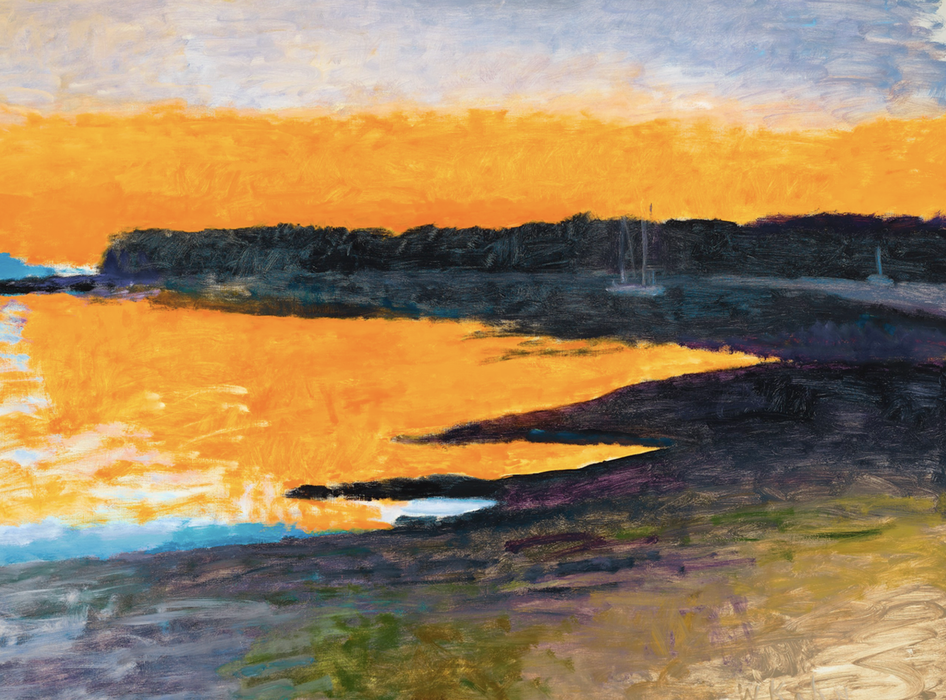
NEW YORK, NY - MILES McENERY GALLERY is pleased to announce results for Christie’s “Fields of Vision: The Private Collection of Artists Wolf Kahn and Emily Mason.” The auction included an online sale that took place from 6 May - 20 May 2021, with a dedicated live sale on 18 May 2021.

Six Must-See Exhibitions in Chelsea This Summer

designboom spoke with jacob hashimoto about how his upbringing has shaped his creative principles, the loss of materiality and traditional ways of making, and relying on the small things in life.

The untitled sculptures and reliefs in Beverly Fishman’s recent show, “I Dream of Sleep,” hide dark subject matter behind attractive appearances. Silky-looking surfaces and smooth, geometric forms fool the eye with a calm, soothing demeanor. Muted pastel colors add the kind of sleek, impersonal veneer associated with corporate headquarters, modern homes, and other objects of contemporary design denoting easy success and reassuring outcomes.

More than a year after the realities of the COVID-19 pandemic set in and art fairs around the world canceled their plans for the foreseeable future, Chicago’s EXPO fair is holding its 2021 edition online, rescheduled from the fair’s usual in-person time slot in September. This year’s edition, known as EXPO CHGO ONLINE, gathers presentations from more than 80 U.S. and international galleries showcasing both contemporary upstarts and well-known figures working in painting, sculpture, fiber art, and much more.

Beverly Fishman is interviewed by Gregory Wessner for NAD Now: The Journal of the National Academy of Design.

Ryan McGinness in conversation with Brian Alfred.

EXPO CHGO ONLINE, organised by EXPO CHICAGO, The International Exposition of Contemporary & Modern Art, is a curated digital exposition featuring 81 galleries, running between 8 and 12 April 2021. Ocula Magazine selects six artwork highlights.

The mostly abstract painter Suzanne Caporael’s eighth show at Miles McEnery offers an excellent exposure to her direct, but not simple, nonobjective lyricism, often linked to nature. Her work consists of images and patterns that sometimes lean in the direction of feasible recognition, but, generally, the paintings enact schemes that are delightful in their own right, without being accessible in a realist sense.

Bo Bartlett in conversation with Brian Alfred.

Artist Emily Mason’s 4,700-Square-Foot Studio Is Just As She Left It.
She painted there for 40 years.
The artist Emily Mason died at age 87 in December 2019, but you can still feel the joyful presence of her work in her bright studio in the Flatiron District. She painted here for 40 years (in the winter months, anyway; from May to October, she worked at her country place in Vermont).

A rare opportunity to compare and contrast the work of two very different painters
"Artists, lovers, life-partners, art-world rivals, benefactors, and luminaries, Emily Mason (1932–2019) and Wolf Kahn (1927–2020) were all of these things—and more. Miles McEnery Gallery has devoted each of its two spaces to the first posthumous solo gallery exhibitions for the couple, who died within months of each other after more than sixty years of marriage. The shows offer a rare opportunity to compare and contrast the work of two very different painters—one abstract and the other figurative—who shared a passion for vibrant color, the bucolic landscapes of Vermont and Italy, and who both aimed in their works for pure, soul-baring expressivity."
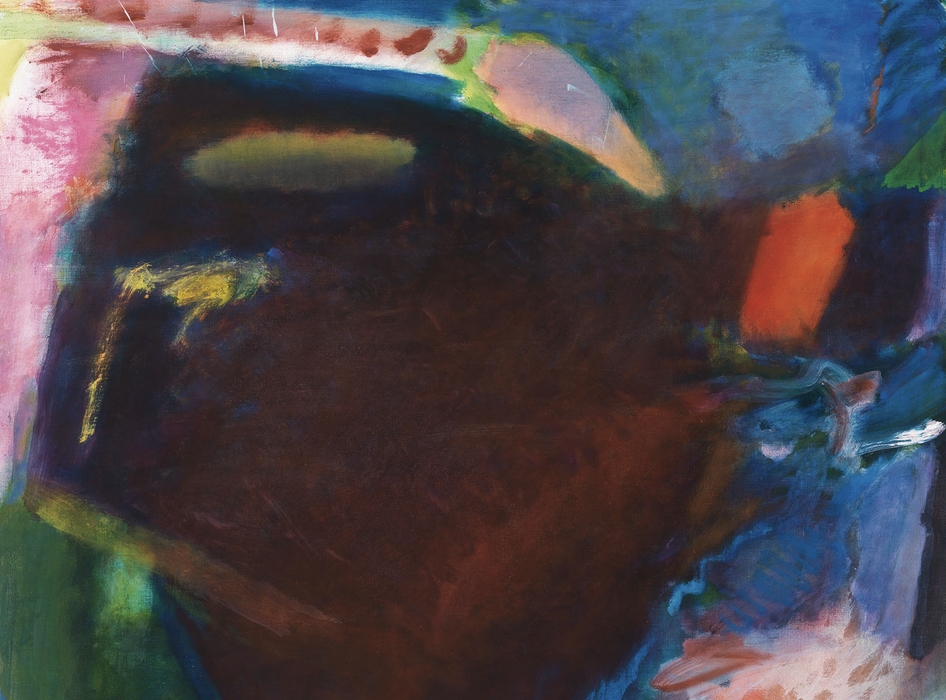
"In looking at the canvases of Emily Mason now on view at Miles McEnery, however, we sense not so much a relation to a certain place or thing, but a lifetime of visual experiences put down onto canvas through a keen process of filtering, something like Joan Mitchell’s translation of the gardens of Vétheuil in her soaring panels of the 1970s and ’80s. The result in Mason’s work is necessarily nonspecific yet points nonetheless toward layers of feeling: light reflected off a rippling canal, a gleaming gold surface, flowers in mid-summer."

4 Art Gallery Shows to See Right Now
Jack Pierson’s assembled works; Marsha Pels’s conceptual jewels; Gordon Hookey’s takes on racism; and Emily Mason’s exuberant abstract paintings.

Idiosyncratic Nature: Donald Kuspit on Inka Essenhigh’s Flowers and Patrice Charbonneau’s Shoals
"Essenhigh’s paintings are indebted to, not to say inspired by, traditional art, not only because they make use of classical myth, however much her figures may be transformed into surreal mirages, but because of their meticulous, even exquisite execution, her mastery of sprezzatura, the art that conceals art, and their baroque-like character, not to say their idiosyncratic beauty."

When the Painting Has Really Begun
On the mid-career work of Cecily Brown and Inka Essenhigh.
"Musings on the fate of judgment have been much on my mind since seeing exhibitions by a couple of painters, Inka Essenhigh and Cecily Brown, who in the late 1990s seemed to me without doubt to be among the most promising painters on the New York scene. They recently exhibited their latest efforts in New York, at the Miles McEnery Gallery and the Paula Cooper Gallery, respectively."
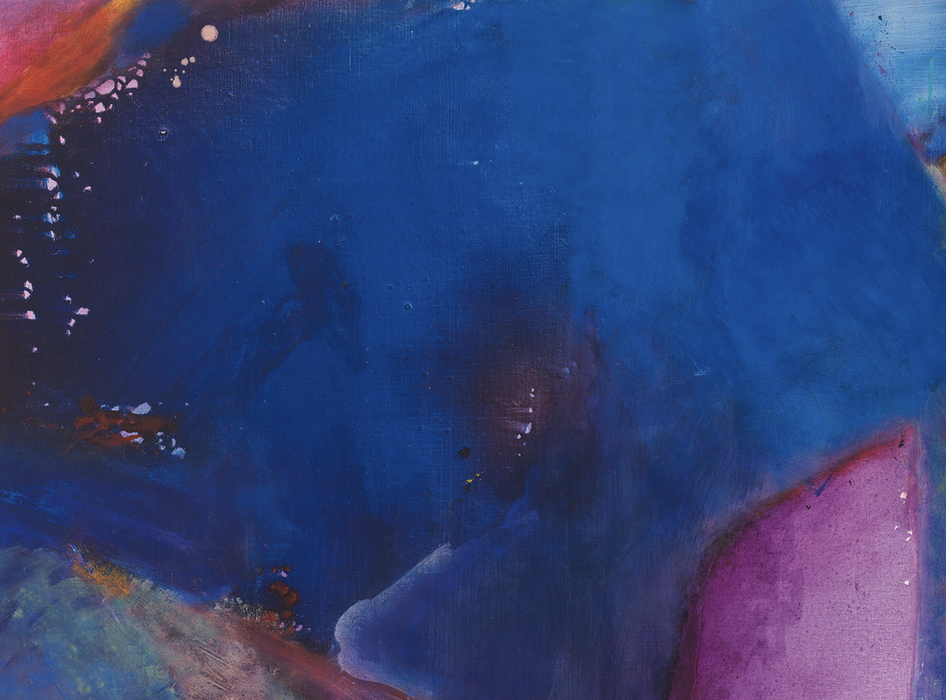
Your Concise New York Art Guide for January 2021
Your list of must-see, fun, insightful, and very New York art events this month.

Emily Mason Connects Visitors To Height Of Abstract Expressionism In New Show At Miles McEnery Gallery
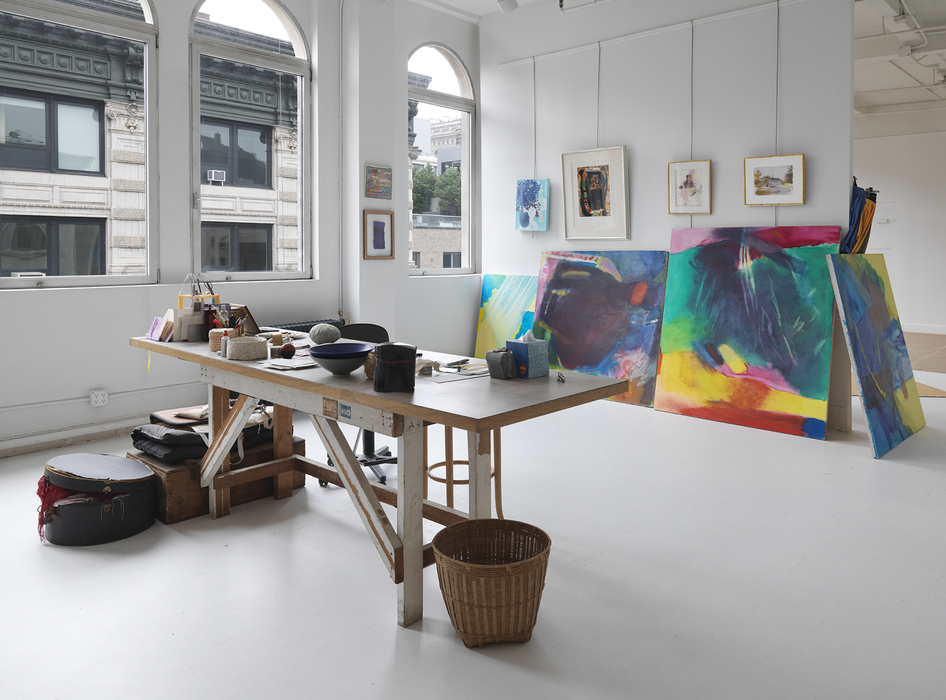
With a Room of Her Own, Emily Mason’s Ethereal Abstractions Bloomed
Mason’s expansive Chelsea studio became her tuning fork — the barometer she used to check that colors and shapes were humming at the right frequency.

A Monthly Culture Matrix for the Cosmopolitan Traveler
Arts Intel Report
Emily Mason: Chelsea Paintings
Until February 13 Miles McEnery Gallery - New York - Art

By Shannon Lee
This January, Artsy is launching a series of three features to spotlight the trends we’re watching in 2021. The artists here are making works that range from aquatic tapestries and abstracted landscape paintings to lush drawings and vegetal ceramics. Their works are prime examples of what we expect to be a growing trend in 2021.

The Critic's Notebook
On William Barents, paintings by Wolf Kahn & Emily Mason, Franz Schubert & more from the world of culture.

Gallery Chronicle
On “Sam Gilliam: Existed Existing” at Pace Gallery, New York, “Martin Puryear” at Matthew Marks Gallery, New York, “Jack Whitten: I Am the Object” at Hauser & Wirth, New York & “Rico Gatson: Ghosts” at Miles McEnery Gallery, New York.

Jennifer Samet sits down with Lisa Corinne Davis.

From Rico Gatson’s mystical investigation of Blackness to Audrey B. Heckler’s prolific collection of Outsider art
By Wallace Ludel and Gabriella Angeleti
Our editors and writers scour the city each week for the most thoughtful, relevant and exciting new exhibitions and artworks on view at galleries, museums and public venues across all five boroughs of New York. This week we recommend:

Miles McEnery Gallery is currently having a group exhibition Sound & Color on view at their 511 West 22nd Street location, and we just couldn't resist its stellar lineup. Curated by Brian Alfred, the host of the renowned Sound & Vision podcast, the exhibition muses with the inseparable connection between the music visual art.

Editors’ Picks: 19 Events for Your Art Calendar This Week, From a Talk With Ruth Asawa’s Children to a Virtual Trip to Manifesta
Here's what to look out for this week.

"Annie Lapin’s paintings are like portals. Step inside, and you find yourself in a disquieting landscape, unfamiliar and yet eerily familiar at the same time. They shimmer with possibilities, almost in a quantum state, to the point that if you look, turn away, and then look again, you could swear that something has moved. In her works, which are basically acrylic on canvas with some mixed media elements, the compositions are discontinuous, so that fragments of landscape are interspersed with passages of pure color and form, so that it’s impossible to categorize the paintings as figurative or abstract."

"Bo Bartlett talks about this week’s cover, inspired by an experience he had in Maine, as well as his new feature film, his family and more."

Mindscapes: Noah Becker Interviews the Cool and Famous Painter Ryan McGinness
"I finally found an opportunity to interview Ryan McGinness, the rather famous New York artist we all know and love. He has a new show called "Mindscapes" featuring 72 paintings on at New York's Miles McEnery Gallery. The exhibition runs from October 15th to November 14th, 2020."

ON VIEW: American Painter Inka Essenhigh’s Surrealist Scenes Offer a Very Enjoyable Distraction From the News—See Them Here
"Escape from the stress of the day with these luscious, fantastical landscapes."

ArtSeen | Beverly Fishman: I Dream of Sleep
For those of my generation, the first scene of Star Wars: A New Hope is embedded in collective memories. The rebel soldiers, soft, fleshy, and clad in pliable fabric, watch a plasma torch cutting through a bulkhead. Seconds later a stream of imperial stormtroopers emerge, their surfaces shiny, plastic, and impermeable, the clean lines of their armor inviting both fear and admiration. The delineation is clear: messy and flexible is good, while there is something sinister about the hard, shiny, or uniform. Beverly Fishman’s I Dream of Sleep, however, embraces this Imperial aesthetic.

Chelsea Explodes in Color: Inka Essenhigh exhibits new paintings at Miles McEnery Gallery
"A quick trip through the Chelsea show makes it obvious why Essenhigh’s stock is rising. In these colorful, dreamlike images, one can spot influences ranging from comic books to anime. But this isn’t really pop art nor is it completely surreal. Often there are straightforward representations, but the longer one looks the more one notices something’s just a little off in a way that evokes the psychology of the greatest fairytales."

INTERVIEW: ARTIST BEVERLY FISHMAN
"Abstract, alluring pieces populate her current solo exhibition, I Dream of Sleep, at Miles McEnery Gallery."

"Sleek reliefs, composed of precise shapes in a bright neon palette, appear to float, rather than hang, on the walls of Fishman’s superb new exhibition, I Dream of Sleep, at the Miles McEnery Gallery."

"I sat one afternoon investigating the nuances and overall genius of the magical, elementally filled space on some work created by Ryan McGinness. Gloriously charged with color, twisting and turning with hints of shimmer from metal leaf elements sprinkled like silvery scales flickering. It is like a dream when you are someplace you name home, but you are not there."

"A few developments, however, suggest all is not doom and gloom. One of these is Miles McEnery Gallery’s expansion into a new space on West Twenty-second Street, which it is inaugurating with a group show titled “Do You Think It Needs A Cloud?,” after a quotation by Jane Freilicher, who’s represented here by a very large landscape (sans cloud) from 1968."

Back to the Future: The Building as Artifact in Daniel Rich's Newest Work
"During this time when office buildings and stadiums, places constructed and designed beholden to capitalism or sport, fall victim to 2020’s Rich’s most recent body of work may be his most sublime and urgent to date."

"Artist Rico Gatson (Instagram: @rico_gatson) joins us for New Social Environment #119, hosted by painter and Rail Editor-at-Large Tom McGlynn (Instagram: @tom_mcglynn), for a discussion on Gatson's work, subjective abstraction, transcendental jazz, the use of geometry, rhythm, color, among other subversive political and social underpinnings, and so on leading to his upcoming show of paintings Miles McEnery Gallery (opening November 19th, 2020). Poet Don Yorty (Instagram: @donyorty) closes the event with a reading from his poetry postcards."

Tomory Dodge was born in Denver, Colorado in 1972. He received a Bachelor of Fine Arts from the Rhode Island School of Design in 1998 and a Master of Fine Arts from the California Institute of the Arts,Valencia, CA in 2004.

Why are so many artists drawn to Maine?
"As the state marks its bicentennial, creative thinkers look to crashing waves, craggy mountains, and colorful seasons for inspiration."

Warren Isensee’s Breakthrough
"Isensee has gone from being a dutiful geometric abstractionist to defining his own trajectory, and gaining a verifiable freedom for himself."

Figurative and Abstract Paintings Brighten NY Galleries
"After being idled for several months during the initial outbreak of the pandemic in New York, the city’s galleries, which are usually closed or merely offering group shows in the month of August, have a fine selection of one-person presentations taking place. With the dwindling likelihood of art fairs coming back to the Big Apple anytime too soon and the city’s museums still under lockdown, its galleries offer the best place to physically see art.
In this round-up of five standout solo shows, we discover three young female figurative painters—Grace Weaver, Rute Merk, and Sojourner Truth Parsons—that every art lover should have on their radar and two seasoned abstractionists—KATSU and Warren Isensee—working in solely original styles."

Four Art Gallery Shows to See Right Now: Warren Isensee
Over the past two or three years,Warren Isensee’s abstract paintings, while always good, have taken a sharp turn for the better. For nearly a decade Mr. Isensee, who has been exhibiting since 1998, cultivated a distinctive geometry of parallel lines whose softened edges and pulsing color contrasts conjured the tubular glow of neon, compartmentalizing them into squares and rectangles with black outlines.

ARTnews in Brief: Miles McEnery Now Represents Rico Gatson—and More
Mixed media artist Rico Gatson has joined the New York–based Miles McEnery Gallery, where he will have a solo exhibition opening November 19.

Surrealism Reloaded. Images from the Subconscious
Sometimes all you need is a sunrise and a piece of moss: Inka Essenhigh’s works are populated by mythological creatures. While painting, she relies entirely on her inner self.

Building a New Sanctuary on Long Island for Culture Lovers
In Sag Harbor, April Gornik and Eric Fischl are converting a former church into a community arts center.

The Enigmatic Beauty of Painting: A conversation with Isca Greenfield-Sanders
"On the occasion of her new exhibition Shade My Eyes, I spoke to Isca Greenfield-Sanders about her newest body of work which will be on view at Miles McEnery Gallery from 21 May until 11 July 2020. The delicately balanced paintings depict scenes that feel reminiscent of childhood memory. They are distant yet quietly composed, serene and tranquil. We spoke together about her process and upbringing for eazel magazine."

Brian Alfred interviews Lisa Corinne Davis for Sound & Vision.

He played with color, creating scenes both calming and arresting. He said he wanted his colors “to be surprising to people without being offensive.”

Wolf Kahn, celebrated painter of resplendent landscapes, dies at 92.

We are delighted to share two additional reviews of April Gornik's current solo exhibition in Painters on Painting and Chelsea News.

April Gornik’s Sunset, 2018—one among the twelve new landscape paintings in her current exhibition at Miles McEnery Gallery—appears as though it might be plugged into an electrical socket. Along the horizon, halfway between a malevolent sky and an inky sea, a stripe of brilliant incandescence worthy of Vermeer lights up storm clouds, choppy waters, and, one would imagine, the entire gallery if it were darkened. Symbolism, Romanticism, Luminism, and feminism have all been cited in regard to Gornik’s work. Indeed, her reimagined versions of natural phenomena are as rich a field for interpretation as the writings of Herman Melville or Ralph Waldo Emerson.

Platform presents group exhibition "Walk the Line"
20 March - 18 April 2020

Interior Design features Beverly Fishman's work in the Miles McEnery Gallery Booth at ZONAMACO as a highlight of the fair.
Exhibitors from 26 countries participated in the 2020 edition of ZONAMACO—Latin America’s leading art platform—in Mexico City, from February 5-6. This year, spatial design studio Tom Postma Design from the Netherlands and Mexican architecture, interior, and graphic design firm Salinas Lasheras were in charge of creating the restaurants and lounge areas.
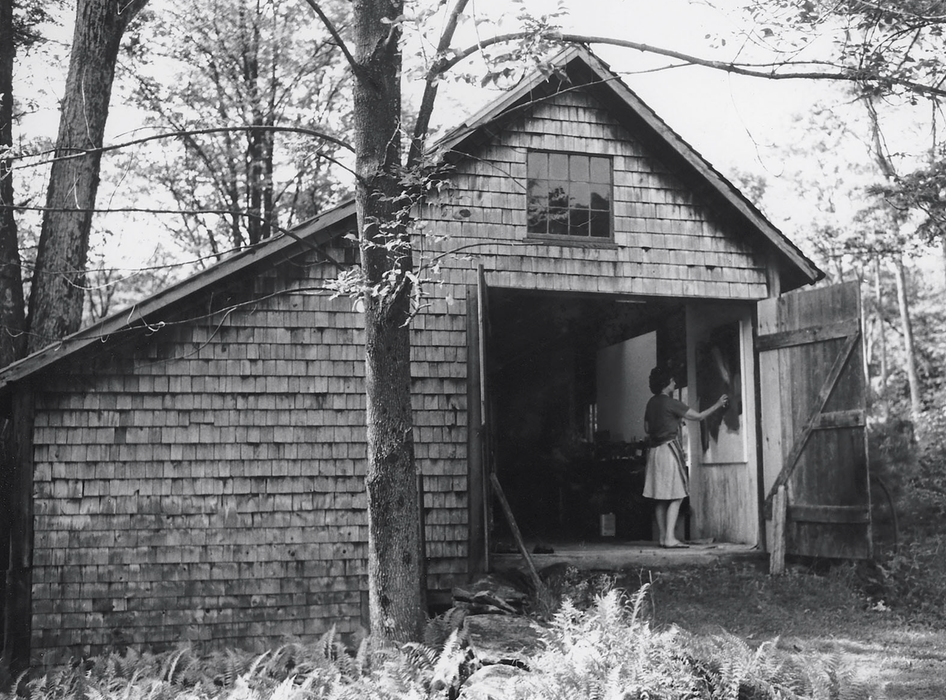
David Ebony
Known as a consummate colorist in her brilliantly hued painterly abstractions, Emily Mason died on December 10, 2019, age 87, at her home in Vermont after a prolonged battle with cancer. December 10 is the birthday of her favorite poet, Emily Dickinson, and Mason regarded each of her paintings as a visual poem, aiming for the expressive, and—dare I say—spiritual quality that she found in Dickinson’s verse. Mason, however, would never admit such lofty ambitions for her art. Although her artistic ambition was obvious to me and to others around her, in the passion for painting that she exuded, and the monumental body of work she produced, Mason always maintained a consistently sincere degree of modesty—sometimes bordering on unwarranted self-effacement—about her goals and achievements.

Emily Mason, Who Created Colorful Canvases, Is Dead at 87.
Part of a family of artists, she was known for creating abstract works by a process she liked to call “letting a painting talk to you.”
For more than 50 years, Emily Mason, an abstract painter in a family of painters, would spend winters in Manhattan, where she had a studio in the Flatiron district, and the warmer months in Brattleboro, Vt., where she and her husband, the painter Wolf Kahn, also had a home.

Mural brings civil rights inspiration to CityPlace’s social setting
"WEST PALM BEACH — Artist Rico Gatson is bringing the legacy of civil rights leader Martin Luther King Jr. to downtown West Palm Beach’s CityPlace, with a series of multi-colored triangles in progress called Mountain Top, on the center’s Gardenia Garage, harkening to the assassinated reverend’s final speech."

The inaugural edition was a surprisingly big success. As year two kicks off, here's what to look for.
Last year, the fledgling new art fair Taipei Dangdai: Art & Ideas made mincemeat of the commonly held belief that it takes a fair a few years to build a solid art world following. The inaugural edition turned out big-name blue-chip galleries, famed global collectors (and Chinese movie stars), and, most importantly, robust sales. Oh, and yes, the fair even had its very own giant inflatable KAWS sculpture to draw in the crowds.
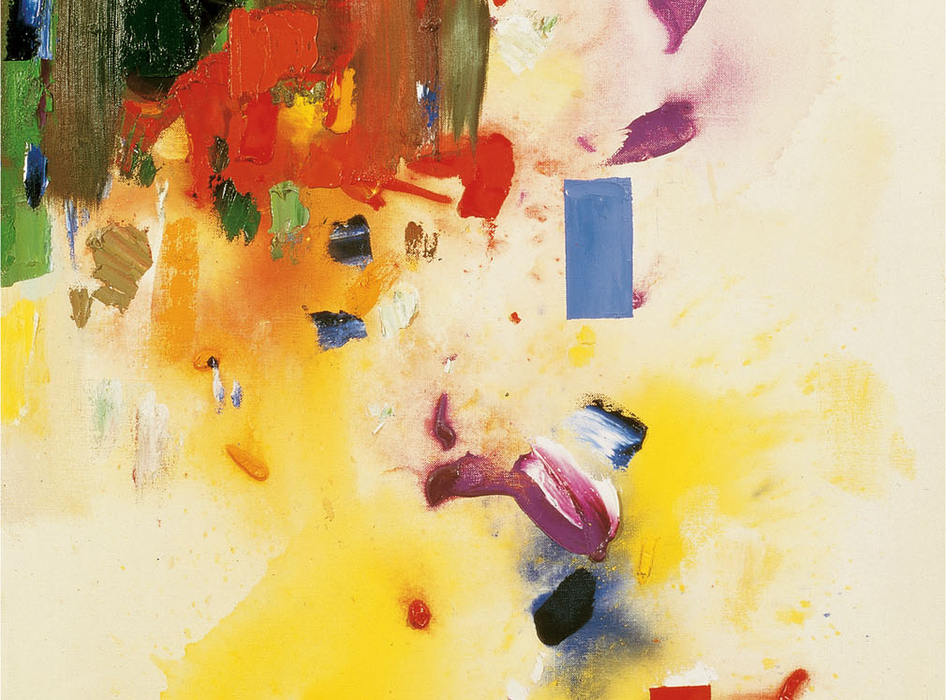
A few years ago, after a Tina Dickey lecture on the German-born American abstract painter Hans Hofmann (1880-1966), an audience member said: “I understand the ‘push,’ but I don’t understand the ‘pull.’” He was referring to Hofmann’s oft-quoted statement about the nature and dynamics of pictorial space in painting. Hofmann—who was not only a renowned painter but also the influential teacher of some of America’s most celebrated midcentury artists—coined the term “push and pull,” which he also referred to as “movement and countermovement” and “plasticity.”

Erin Lawlor was born in Epping, UK in 1969. Lawlor lived in France from 1987 to 2013, and holds a BA in History of Art and Archaeology from the University of Paris IV – la Sorbonne (1992). She currently lives and works in London. Lawlor has exhibited extensively internationally over the last twenty years; recent exhibitions of note include a presentation at the Ny Carlsberg Glyptotek Museum, ‘Maleri:nu (Paint:now)’, in Copenhagen in 2016; a substantial solo exhibition at the Mark Rothko Art Centre in Latvia in 2017; as well as recent solo exhibitions at Rod Barton, Brussels (2016), Espacio Valverde, Madrid (2018), Fifi Projects, Mexico (2018), Fox/Jensen Gallery, Australia (2018), and Miles McEnery Gallery, New York (2019). She was one of three painters showcased in the Space K exhibition ‘British Painting 2019’ in Seoul, South Korea, this summer. Lawlor is currently preparing for a solo exhibition at Fox/Jensen/McCrory Gallery in Auckland, NZ, for next spring. She and her work will also be featured in the book ‘Free Spirits’ by Rosie Osborne, to be published next week.

Raffi Kalenderian is featured as one of 11 finalists in Galerie Magazine's Emerging Artists Award Issue.
By depicting people from his everyday life in almost “claustrophobic” environments, Raffi Kalenderian creates a tension between intimacy and formality, depth and on-the-surface aloofness that’s hard to turn away from.

Peering into scenes painted on tiny panels, some barely larger than a note card, the viewer observes the intimacy and isolation of Amy Bennett’s one-inch high figures. Their fictional lives, set in richly colored and seemingly idyllic suburban neighborhoods and homes flooded with morning light, are disturbed by marital discontent and parental ambivalence. Family members often inhabit the same rooms, but absorbed in laptops or yoga routines, they never interact; mothers, attentive to their children’s needs, struggle to dress or sleep while infants are latched to their breasts, echoing psychosocial theorist Lisa Baraitser’s claim that the maternal care is “an ethics of interruption.”

Inspired by life in the Hudson Valley town of Cold Spring, painter Amy Bennett’s series “Nuclear Family” distills scenes of everyday life into uncanny snapshots of domesticity.
Currently on view at Miles McEnery Gallery through Aug. 16, the works presented in the exhibition explore themes of family on small, finely detailed canvases that wrap around the gallery walls like tiny windows. The paintings, replete with interior rooms and suburban landscapes, capture with serene clarity the quiet, quotidian elements that otherwise drift by throughout the course of the day.

Erin Lawlor’s paintings, on view at Miles McEnery Gallery through August 16, have a sense of the familiar. Wide brush strokes play off one another, conjuring winding ribbons, rendered systematically like blood flowing to and from the heart — an ebb and flow of the most critical kind. At first glance, the deep rich color drew me in, then the scale, then the whimsy that radiates from the wide, curvy mark-making. But then, as I moved through the gallery with more focus, Lawlor’s paintings evoked a sense of observing the art of an earlier time: the natural integration of motion, body, and presence.

An inaugural solo exhibition of the work of London-based artist Erin Lawlor presents a selection of vivid paintings spanning 2017 – 2019 and evinces advancements in the artist’s trademark brushwork, color usage, and compositional formats. The works in this series build upon painting explorations consisting of a loopy, curvilinear patchwork that produces heightened subtleties between foreground, middle-ground, and background. Constructed from a multitude of axial planes that fully exploit levels of push-pull between the nip, tuck, and fold of her envisioned spaces, Lawlor’s dynamic imagery elicits an impeded desire to peel back layers of curvature that seem to go on interminably.

Shortly after my review of Amy Bennett’s exhibition at Miles McEnery Gallery appeared on the Hyperallergic Weekend, I got an email from Mollye Miller, who, I later learned, is a photographer and poet living in Baltimore. In fact, she and I were published in the same little magazine, Prelude, edited by Stu Watson, but not in the same issue. But all of what I know of her came after I read her email.

For more than a decade, Amy Bennett has been building a loyal following for her highly detailed views of a fictional world that resembles our own. She is an observational painter who works from models that she painstakingly constructs. For one group of paintings, Bennett transformed an 8-foot-square of Styrofoam into a lush green landscape that contained more than 450 buildings set within rolling hills and valleys, complete with streams and lakes. Each of the buildings was designed, built, and painted by the artist, who then depicted this self-contained world from different angles, often from a bird’s eye view. Tending to working on a small scale, she made paintings that remained true to the miniaturized perfection of her artificial, slightly askew world. All sorts of tensions arose.

While in town for the opening of her solo exhibition at Miles McEnery Gallery, Erin Lawlor stopped in for a chat with Brian Alfred on his podcast "Sound & Vision." During this episode, Erin talks about beating Brexit, process and painting, writing vs. painting, seeing David Bowie live, and much more.

I am interested in intersections between technology and architecture, and the impact of communications media on society, culture, and historical events. I explore these intersections through contexts such as WikiLeaks, Edward Snowden, instances of hacking, digital warfare, software glitches at Nasdaq, the role of social media in recent revolutions and wars in the Middle East, and the fragility of the systems on which we depend.

There have always been multiple entry points for viewers to come to terms with John Sonsini’s bravura portraits of single or multiple male subjects, most of whom are Mexican day laborers, and “the age of Trump” has unexpectedly provided us with yet another. We as a people have never in living memory been forced to listen to the occupant of the White House vilify Hispanic migrants and asylum seekers with the excessive slander and bitterness as its current occupant, and for millions of Americans, such rhetorical excess has prompted its own collective soul-searching.

This month, eleven paintings by David Allan Peters are on view in New York at Miles McEnery Gallery. The category of “painting” however, seems too restrictive for this unique process. Though each is technically made of paint, the mesmerizing visual effect is achieved by carving thousands of gouges into the thick surface that reveals an explosion of color layers.

As US federal criminal charges are filed against Rochester Drug Cooperative – the first such case involving a drug distributor and its executives – and the Sackler family come under intense scrutiny for their role in the country’s opioid crisis, ‘Future Perfect’, Beverly Fishman’s solo show at Kavi Gupta, rings with the clarity of those indictments. Spanning the artist’s work from the late 1990s to the early 2010s, the show harnesses the power of marketing – the very same power which the Sacklers have been accused of abusing – to critique the insidious appeal of modern pills.

Artists April Gornik and Eric Fischl team up with architect Lee Skolnick to create an incubator for artists in Sag Harbor.
Artist Eric Fischl is standing under the eaves of Sag Harbor’s deconsecrated First Methodist Church, currently a construction site he visits almost daily. More than a year ago, Fischl and his wife, artist April Gornik, purchased the building to return it to its original intent as a community gathering place.

Victor Cassidy interviews Jacob Hashimoto for Sculpture Magazine.

Featuring works by gallery artists Inka Essenhigh, April Gornik, Amy Bennett, and Isca Greenfield-Sanders, new book Landscape Painting Now: From Pop Abstraction to New Romanticism presents a global survey of landscape painting in the 21st century. Including work by more than 80 outstanding artists, the book highlights the thriving genre of landscape painting in the contemporary world, while also reflecting upon its origins.
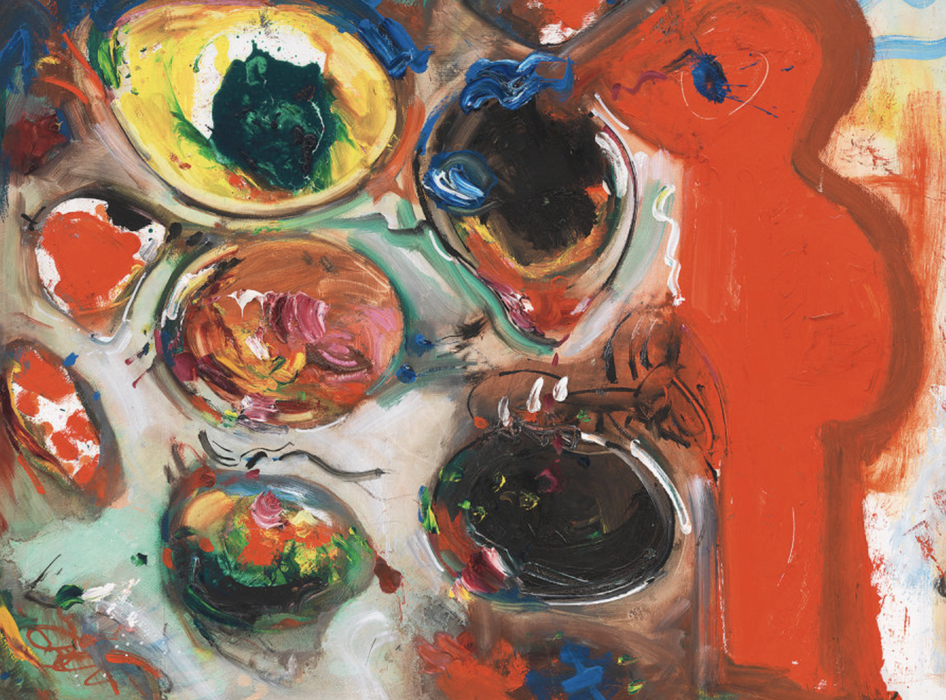
In 1903, Hans Hofmann (1880 - 1966) moved from Munich to Paris where he saw the influential Paul Cézanne retrospective at the Salon d'Automne in 1907, worked with Henri Matisse, and became friends with George Braque, Robert and Sonia Delaunay and Pablo Picasso, eventually fusing Fauvism and Cubism to new effect, and later adding Wassily Kandinsky to the influential mix. Though he was present at the birth of abstract painting in the early twentieth century, he was not one of its midwives, but rather a synthesizer of their ideas, opening what is generally regarded as the first school of modern art in 1915. He settled in the United States in 1932 and finally found his own artistic voice.
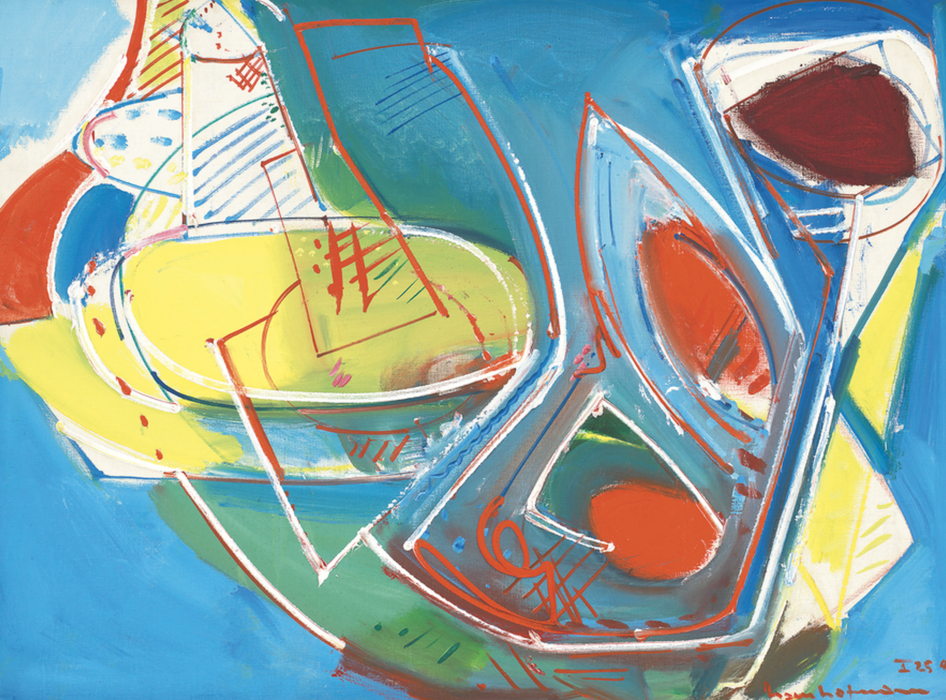
Each week, artists, art historians and authors join host Tyler Green to discuss their work on The Modern Arts Notes Podcast
Episode No. 382 of The Modern Art Notes Podcast features artist Allen Ruppersberg in the first segment and curator Lucinda Barnes in the second segment discussing “Hans Hofmann: The Nature of Abstraction," currently on view at BAMPFA through 21 July 2019.

Beverly Fishman’s high gloss surfaces have an inscrutable beauty. The shape and color of each work looks both estranging and familiar, and whilst the combinations of sometimes acidic or synthetic color entrance, they do not comfort. The reason, I suspect, is because not only are the multiple variations of geometric abstraction present but also the nagging solicitations of brand imaging. Fishman is of the generation of abstract painters who came to abstraction after it was cleansed of the conceit of purity. Abstraction had entered the realm of the senses by way of referential visions that embraced the world at large, free of dogma, or certainty, or for that matter a sure sense of subjectivity.

Many people scoff at abstract art, saying that it requires no skill to make. But new studies show that even the untrained eye detects the differences that set apart the work of real artists.

Renowned abstract painter Emily Mason to speak at BMAC on Friday, 19 October
Free talk by the 86-year-old artist is presented in connection with a major exhibition of her work at Brattleboro Museum & Art Center

Inka Essenhigh creates beautiful, whimsical worlds populated with fluid, ambiguous figures. Their playfulness invites us into their delightful, other-worldly realm of melting dreams.

I remember the first time I saw Jo Baer’s painting ‘H. Arcuata’. It wasn’t at a museum or gallery; it was the same kind of encounter I had with most art that hit me as an undergraduate at Penn State University. It was in a magazine. Even in print the painting knocked me out. It was so unlike any other work I had seen up until that time. It was painted three years before I was born in 1971. The stretcher was just deep enough to separate it from the depth of a normal canvas. This seemed a purposeful choice to make the painting more sculptural in its read.

When I come across a work of art as weird and seductive and startlingly beautiful as an Inka Essenhigh painting, I haven’t the faintest desire to engage in my critical faculties. I just want to be overcome by the supple, erotic strangeness of her surrealist narratives; the chitinous sheen of her works’ surfaces; her Prada-meets-Star Trek palette; and the gelatinous, ectomorphic figures. You want to dissolve into an Essenhigh painting, in the same way that she dissolves virtually all solidity within her forms and spaces. Every body, every thing looks as though it’s made of melted caramel, or flowing silk, or liquid latex suspended midair, or some sinuous, alien protein.

Essenhigh reveals a freedom that resonates with all manner of fusion: of figure and design, of abstraction and narrative, of sentiment and humor, and more generally, of ambitious painting with a readable narrative.

Artist Inka Essenhigh spent the early years of her career thinking that her fluid, feminine paintings were a no-no.
As she painted graceful fairies, ghosts and woodland creatures that played in colorful, mystical universes, her art friends called them lightweight and kitschy.
But the work felt right, so the New York-based artist kept creating.

It’s another unseasonably warm winter day in New York City. Tuesday February 13th, early evening and dark out. It’ll be in the 50’s tomorrow and in the 60’s the day after. I’m trying to remember if I’ve ever experienced such a warm February in NYC. There’s an unsettling mist and fog in the air as I weave through end of the day rush hour hordes of people – many bumping into each other as they walk with illuminated faces absorbed in their handheld screens. The pedestrian crowd dissipates as I walk through Chelsea and finally step into Miles McEnery Gallery to meet up with artist Brian Alfred for a look and talk about his current one-person show of 15 paintings and one animated video projection.

By Brian Boucher
What the Gallery Says: “Taking its title from Alvin Toffler’s 1970 novel and Herbie Hancock’s 1983 album, Brian Alfred’s Future Shock embraces both of their messages and expands upon them. Toffler warns of an impending information overload as well as humanity’s inability to adapt to the ever-increasing speed of industry and consumerism. Alternatively, Hancock’s album welcomes the so-called information overload, praising the expansion of musical possibilities brought on by technology.”

FOR AN ARTIST who emerged from the Sturm-und-Drang driven Abstract Expressionist movement of 1950s New York, Emily Mason's work is remarkably serene. This quality is not only apparent in the way vibrant swaths of oil paint harmonize with each other on the canvas; it also comes through in the way her career has quietly percolated along through the decades since, without drama or self-promotion, with no clearly delineated sty listic phases or periods. Mason, now 86, is still making new work the way she always has-by intuition, without any need for theo ries, without measuring herself against others.

Issue 02 of AUGUST Journal, the New York issue. Featuring stories on Massimo and Lella Vignelli's apartment, Alanna Heiss's loft, Joe Baum's restaurants; with texts, photographs, and artworks by Pilar Viladas, Wendy Goodman, Matt Tyrnauer, Alix Browne, Ricky Clifton, Jason Schmidt, François Dischinger, Ngoc Minh Ngo, Martyn Thompson, Andrew Zuckerman, Matthew Johnston, Marc Yankus, Jean-Philippe Delhomme, Mel Odom, and many other grand New York legends.

by David Pagel
The size of Monique van Genderen’s paintings on linen and aluminum panel dwarf visitors to her exhibition at Susanne Vielmetter Los Angeles Projects in Culver City.
Four giant paintings run from one inch above the gallery floor to within one inch of the top of the 14-foot walls. Each of the untitled works is 6½ feet wide.
Ten paintings are hung side by side so that you can see the sweeping gestures van Genderen has made with rags, rollers and mops. The suite measures more than 40 feet long and 8 feet tall. A large part of a wall had to be removed so that this freight train of a painting could hang on a single wall. The jagged edges of the removed section attest to the power of this abstract landscape, whose 10 panels, lined up like boxcars, seem go on forever.

by Charles A. Riley II
The dazzling, at times even overwhelming “From Lens to Eye to Hand: Photorealism 1969 to Today” exhibition currently on view at the Parrish Art Museum in Water Mill, NY has all the earmarks, for this reviewer, of a reality TV competition. To me, the cumulative effect of the huge, boisterous paintings in this exhibition is to suggest a fierce contest for the title of America’s Top Realist.

Everyone enjoys a good story, and when you visit the Ameringer McEnery Yohe Gallery in Chelsea, you can enjoy a wealth of interesting stories in the work currently on display. When I peeked in the window before entering, I knew I was in for a treat. The first thing I saw were these large canvasses filled with primary and neon colors arranged in interesting geometric shapes. Once I entered, I knew immediately this wouldn’t be an exhibit I could simply breeze through and get a general sense of. I spent as much time as possible with the paintings, practically eating up the rich story life in each.

by Carrie Beth Wallace
Columbus artist Bo Bartlett recently won the 2017 Gibbes Society 1858 Southern Contemporary Art Prize. The prize was sought after by over 200 artists throughout the Southeast.
Bartlett is widely recognized for his realist paintings. Notable ongoing local contributions include his art initiative for the homeless called Home is Where the Art Is, and the Bo Bartlett Center at Columbus State University opening January 2018.
The artist recently corresponded with Sunday Arts reporter Carrie Beth Wallace to discuss his reaction to winning the award, his current projects, how he’s feeling about the impending Bartlett Center opening, and what he plans to do with the prize money in the future.
This interview has been edited for length and clarity.

by Will Heinrich
Another Place
Through 3 September
There’s a smoky texture of hypnagogic disorientation on Henry Street inside the artist-run space Shrine. Loose but elaborate figurative work by a dozen painters and sculptors, all of it small scale and much of it held together by a shared palette of purples and browns, makes for a desperately welcome getaway into the cool fertility of unworldly private fantasy.
In “Study for Monsters of Manhattan,” Inka Essenhigh paints three mysterious women with watery lines and finely observed anatomical details. Alice Mackler’s earthenware figure combines squeezes, pokes and thumbprints with a rooster-colored glaze, creating a startling mannequin of bright-eyed psychological defiance. Kevin McNamee-Tweed’s winning monoprints look like plates from a hobo history of civilization, and in Charlie Roberts’s trippy lavender acrylic of a charismatic dancing house plant, apparently rough edges belie a deeply satisfying sense of balance.

by Andrew Russeth
It is the middle of the summer, but the gallery news does not stop!
Today Chelsea’s Ameringer | McEnery | Yohe announced that it will now represent painter Tomory Dodge, who previously showed in New York with CRG Gallery, which said in May that it would close after 25 years in business.
Dodge, who is based in Los Angeles, makes shimmering abstractions that are loosely interlocked and layered. They are playful, sometimes even effervescent, and can be vaguely spiritual. His paintings are in the collection of the Los Angeles County Museum of Art, the Whitney Museum, and the San Francisco Museum of Modern Art, among quite a few others.

The FLAG Art Foundation presents The Times from June 1 – August 11, 2017, on its 9th floor gallery. The exhibition uses The New York Times as its point of departure and features over 80 artists, artist duos, and collectives who use the “paper of record” to address and reframe issues that impact our everyday lives.
Reading The New York Times is embedded in many people’s daily routines. This chronicle of geopolitical and local issues, tragedies, human interest stories, and trends in culture, serves as both a source of inspiration and medium for artists to assert their perspectives on the state of the world. In the wake of the 2016 presidential election, where news media was deemed the “the enemy of the people,” and The New York Times directly attacked and labeled as “fake news,” FLAG began developing an exhibition examining how seminal artists, such as Robert Gober, Ellsworth Kelly, Lorraine O’Grady, Fred Tomaselli, and others, who have used and been inspired by this newspaper in their practice. To give voice to a larger community, FLAG put out an open call for artist submissions that received 400+ proposals from around the world, and accounts for over half of the artists featured in the exhibition.

Black Lives Shine in Rico Gatson’s New Show
"Rico Gatson’s studio, in Bushwick, is awash in color and geometry. Tall rectangular panels painted in intricate patterns lean against a wall like abstract totems. Other planks lie across tables, works in progress involving ovals and circles. Large paintings on the wall alternate geometric sections in red, black, orange, yellow, and green with others in black and white. Nearby, silhouettes taken from vintage images of Black Panthers and civil rights protesters stand beneath strong colored vertical stripes or radiating lines."

by Bo Bartlett
Today, Andrew Wyeth would’ve celebrated his 100th birthday.
In 1991, I was 35 years old and coming off of a successful show at PPOW Gallery when on the next to last day of the exhibition art critic Roberta Smith wrote a negative review of the work in The New York Times.
I had a strict rule of not reading any of my reviews good or bad. But Wendy from the gallery encouraged me to go out and buy the paper and read the review, because, she said, I would need to “be aware of what people would be saying about the work.” Reluctantly, I did as my gallerist instructed. Although it stung, I didn’t really care about the review at the time. But, the following months shed a different light on the negative ramifications of bad press. Several scheduled articles dried up. Sales slowed to a trickle. I found myself in need of appreciation and resources.

by Chuck Williams
Columbus artist Bo Bartlett, known nationally for his realist works, is painting again.
But this time the canvas is different, even if the familiar backdrop of his hometown of Columbus is the same.
Bartlett, along with his wife and fellow artist Betsy Eby, is directing and producing a feature-length film — “Things that Don’t Stay Fixed.” It is being shot this month throughout Columbus.
It’s the biggest painting we have ever made,” Eby said.
The two are self-funding the ultra low-budget film that has paid lead actors and paid professional production crews.

by Kevin O'Connor
BRATTLEBORO — Artist Wolf Kahn recalls picking up this town’s newspaper 40 years ago to see himself introduced to Vermonters through a particularly top-dollar interview.
The first question was, ‘How many paintings do you do a year?’ I said maybe 100. The second was, ‘How much do you charge?’ I said a couple of hundred bucks. The next time I had to have my barn reshingled, all of a sudden the price went up.”
Kahn nevertheless thinks highly of his neighbors, be they the farmers who live next door or their cattle that graze his land.
I’ve gotten to feel like I’m no longer just a flatlander — I belong here.”
Locals say that’s an understatement.

This June, visitors to Ameringer | McEnery | Yohe gallery in Chelsea, Manhattan, are confronted with a sea of blues, both literal and figurative, and a strong sense of nostalgia for summers spent by the sea. “Keep Them Still” is an exhibition of striking new works by New York-based artist Isca Greenfield-Sanders, on display through July 1. A collection of watercolor-and-oil paintings depicting blurred, sun-dappled beach scenes and close-ups of abstracted rippled waves fill the rooms. In the first space, two wave paintings—one pink and one blue—hang opposite a pair of zoomed-out coastline paintings from which they were extracted and distilled.

Questions by Emily Burns
Thanks so much for taking the time to chat about your work and recent projects. Congrats on the recent showing of your animation Chromacity at Art Basel in Miami. The projection was 7,000-square-feet on the exterior wall of the Frank Gehry-designed New World Center in Miami Beach, Florida. Is that the largest projection of your work at this point? What is it like to have your work in such a highly visible, publicized space, in such a big way?
Thanks. Yeah, I suppose that’s the biggest I have ever had my animations projected. I love having the work in public places. There’s such a different feel and reaction to it than in the gallery. I’m so happy when my work is able to reach beyond the gallery-goer and to the person on the street who may not be intending to see art during their day. I’ve been fortunate enough to show the animations in places like Times Square, Eventi Plaza, Sundance and even on buildings in Australia. To me, it’s very exciting for my work to be seen in such diverse places.

RICO GATSON: Icons 2007 - 2017
"When elevating a human subject to sainthood or, at least making them an object of veneration, an artist needs to consider practically how it is that light or beams of pure energy will emanate from their being. Rico Gatson’s exhibition Icons 2007–2017 is just such an exercise in catapulting the human into the supernatural realm. We are watching an artist doing what artists do best: rendering the unimaginable into the visual and the unspeakable into human terms."

How Radical Can A Portrait Be?
"Icons, a solo exhibition of recent works on paper by the artist Rico Gatson, curated by Hallie Ringle, takes this ecstasy in personhood and makes it as visible as people themselves. Gatson appropriates old photographic images of famous black Americans—Zora Neale Hurston, Gil Scott-Heron, Nina Simone, Marvin Gaye—and surrounds them with bright, colorful lines that shoot outward from the personages to the borders of the page."

by Robert Hobbs
The most comprehensive retrospective exhibition of works on paper by the Abstract Expressionist Hans Hofmann is now on view at Museum of Contemporary Art Jacksonville, a cultural institute of the University of North Florida. Curated by Wall Street Journal contributor Karen Wilkin and Marcelle Polednik of the Milwaukee Art Museum, this survey of 80 multimedia works, spanning the half-century from about 1914 to 1965, is an entrancing celebration of the thoroughly energized, richly hued works.
German-born Hans Hofmann (1880-1966) was the first person to formulate a set of principles for understanding modern art, making him one of the century’s most important teachers. He based them on his intimate acquaintance with Fauvism, Cubism and its lyrical offshoot, Orphism, while in Paris from 1905 to 1913, and years later, while back in Germany, with Surrealism.

by Annie Block
Not one, not two, but three. That’s the number of new buildings in downtown Miami by Arquitectonica International Corporation and the Related Group that also feature large-scale works by world-renowned artists.
SLS Lux, the latest evolution of the brand—and the most VIP—opens in the fall, with hotel rooms and residences by Yabu Pushelberg, an LED facade by Ana Martinez, and an exterior mural by Fabian Burgos. Burgos’s work appears again on Brickell Heights, a two-tower condominium bowing in May with interiors by Rockwell Group. The hotel rooms and residences in the last of the trio, SLS Brickell, are open for business. Philippe Starck handled the interiors, and Markus Linnenbrink was commissioned for the exterior, emblazoning 40,000 square feet of the concrete facade with his signature drip painting.

by Will Heinrich
Suzanne Caporael’s latest paintings — she numbers them sequentially, with the current show’s being in the low 700s — are divided into flat, irregular blocks of deep color with slightly blurry edges. The blocks themselves might pass for recessive Rothkos, pulling in a viewer’s gaze instead of glowing out to meet it. But the compositions as a whole look more like rice paddies at night. They’re distinctly horizontal in effect despite hanging on the wall, and the narrow boundaries between colors have all the silent force of property lines.

ORLANDO, FLA.- The Mennello Museum of American Art is presenting the solo exhibition Bo Bartlett: American Artist. The exhibition, which runs through May 7, presents large-scale oil paintings that are figurative, psychologically imbued, beautifully rendered, and wonderfully sublime by one of the most significant American Realist painters of his generation.
Bo Bartlett is widely renowned for his multi-layered complex image making rooted in narrative, story telling, art history, literature, poetry, and every day life. Bartlett works in a long-established tradition in American painting that stretches from Thomas Eakins and Winslow Homer to Edward Hopper and Andrew Wyeth. Like these artists, Bartlett looks at America's land and people to depict the beauty he finds in everyday life. His paintings celebrate the underlying epic nature of the commonplace and the personal significance of the extraordinary. Of Bartlett’s work, Andrew Wyeth wrote, “Bo Bartlett is very American. He is fresh, he’s gifted, and he’s what we need in this country. Bo is one of the very few I feel this strongly about.”

by Hind Berji
At first glance, Bo Bartlett‘s work doesn’t look like anything new. His large canvases are filled with the crisp realism of Edward Hopper, the small-town iconography of Norman Rockwell, and the vibrancy and luminism of George Caleb Bingham. Yet, Bartlett brings it all together to portray a fresh and complicated take on American life as he knows it. Organized by the Mennello Museum of American Art with an extension of four paintings at The Orlando Museum of Art, Bo Bartlett: American Artist features the seductive quality of oil paintings, which stems partly from his large canvases and polished aesthetic. His paintings are subdued with a warm light that looks like the most natural thing in the world—a fleeting, bittersweet, transitional light that falls on his characters.

Jackie Gendel (b. 1973, Houston, TX) received her BFA from Washington University, St. Louis, in 1996 and her MFA from Yale University in 1998. Recent exhibitions include Thomas Erben, New York; Jeff Bailey, Hudson; and Loyal Gallery, Malmö. Reviews of her work have appeared in Modern Painters, Artforum, Art in America, New Yorker, and Hyperallergic, to name a few. Gendel lives and works in Brooklyn, New York.
Franklin Evans creates painting installations with the artist’s studio as subject. He lives in New York. He has exhibited institutionally at MoMA PS1, The Drawing Center, El Museo del Barrio, deCordova Sculpture Park and Museum, RISD Museum. Awards include MacDowell Fellow; Yaddo Fellow; The Marie Walsh Sharpe Space Program; LMCC Workspace; NYFA Fellow Painting; Pollock- Krasner Foundation. He is represented by Ameringer McEnery Yohe in Chelsea. Jennifer Samet is a New York City-based curator and writer. She teaches art history at The New York Studio School and The New School, and is the author of the popular column "Beer with a Painter," in Hyperallergic. She is also the co-director of Steven Harvey Fine Art Projects, in the Lower East Side. WEDNESDAY, MARCH 1, 2017
New York Studio School of Drawing, Painting & Sculpture
8 West 8th Street, New York, NY 10011
Lectures begin at 6:30 pm. Lectures are free and open to the public. Seating may be limited.

Beverly Fishman creates powerful abstract paintings that address technology and the pharmaceutical industry. Fishman lives and works in Detroit, where she teaches painting at the Cranbrook Academy of Art. She spent a sabbatical in New York last year, and late in the summer I had the opportunity to visit her in her studio. Fishman spoke at length about drugs, systems of dependency, and the insidious nature of healthcare in America. While I had prepared to discuss her geometric abstractions, her candor came as a surprise. The country’s current discourse on healthcare give her paintings particular significance. We remain one of the few industrialized nations without universal healthcare. With the election of Donald Trump, Republicans stand poised to repeal the Affordable Care Act. Furthermore, many American citizens take a cocktail of prescription and illicit drugs to simply feel normal.
Fishman is a painter with the concerns of a sculptor, making paintings that require high levels of production. Her studio practice includes manufacturing uniquely shaped supports and consulting with automotive paint specialists to get the background she needs to achieve industrial finishes. Fishman’s solo exhibition “DOSE,” curated by Nick Cave, opens Thursday at the CUE Art Foundation in New York, where it is on view through April 5.

by Eric Sutphin
As I waited in the lobby of the Experimental Theater to see Juliana May's Adult Documentary (2016), amid a scrappy installation by Franklin Evans composed of paper detritus and neon tape, I felt unmoored, uninitiated. Had I not read enough Butler or Sedgwick or Baldwin to fully understanding the goings-on? Has realness become institutionalized as yet another countercultural phenomenon that has been converted into an academicized aesthetic proposition? Sound bites from the crowd began to tell me a thing or two. A young woman behind me said to a well-known choreographer: "I just wrote about you in my grad school application . . . I mean, I don't even know if I want to go to grad school, but it's, like, so hard out here." Shortly after, a refined young man said to the same choreographer: "My adviser told me to just sit down and make sentences. So I did that and, you know, walked away with a PhD." This account of academic achievement, despite its shoegaze simplicity, seemed like rather sound advice to a choreographer (or critic). Though May's piece seemed milquetoast and insular (full as it was of inside jokes about dance that made the dance-world folks in the audience chuckle to themselves), it became clear that a venture like American Realness is absolutely vital. The conversation and kvetching (and posturing and flattering) that was going on before the doors opened galvanized the spirit of realness, which at its best foregrounds both attitude and inclusion. In a political moment where feelings of anger, alienation, and profound uncertainty are reinforced daily, American Realness continues to be not only an outlet, but a lifeline.

Today’s show: Randy Dudley’s solo exhibition is on view at Ameringer | McEnery | Yohe in New York through Saturday, February 11. The show presents recent drawings by the Illinois–based artist.

by David Ebony
While a younger generation of artists, led by Katharina Grosse, Carol Bove, and others, are finding renewed significance and surprising rewards in extemporaneous abstract painting and sculpture, certain veterans like Emily Mason never lost faith in its limitless possibilities. Mason is heir to a long lineage of artistic forebears, perhaps most notably her mother, Alice Trumbull Mason, who was a founding member of the American Abstract Artists group in the mid-1930s. Emily’s childhood memories include visits from Mondrian, and watching Miró paint in a studio adjacent to her mother’s. Painting was in her blood, but she diverged from her mother’s penchant for hard-edge abstraction, and instead gravitated in the 1950s toward a more informal, intuitive process centered on color relationships and fluid gestures, which she has been developing and refining ever since. Her expansive and elusive compositions in some way establish a vital link between Abstract Expressionism and Color Field painting.

Emily Mason, a painter whose work represents both a unique marriage of understatement and gestural expression and a union of vibrant color and minimalist reserve, receives an examined look at her recent work at Ameringer | McEnery | Yohe Gallery.
Measured by Mason’s simultaneous participation in the “Inventing Downtown” show at NYU’s Grey Art Gallery—a show about artist-run galleries in the early 1950s—the artist’s career has been built on decades of developing a painterly language loose enough to allow multiple voicing, yet purposeful enough to assert a lone sensibility.

By Matthew J. Palm
Waves crash. The skeleton of a huge ship rises through scaffolding. Fishermen haul in their catch. Shoreline plants take on a delicate purple hue.
These are images of Maine, and the Pine Tree State is at center stage in the latest exhibition at Orlando Museum of Art.
The Wyeths and American Artists in Maine” will be on view through April 23. It’s a chance to see works by three generations of the famed Wyeth family of artists — N.C., Andrew and Jamie — as well as others. The exhibit is also a chance to reflect, or learn about, the significance of that northern neck of the woods to the visual arts.
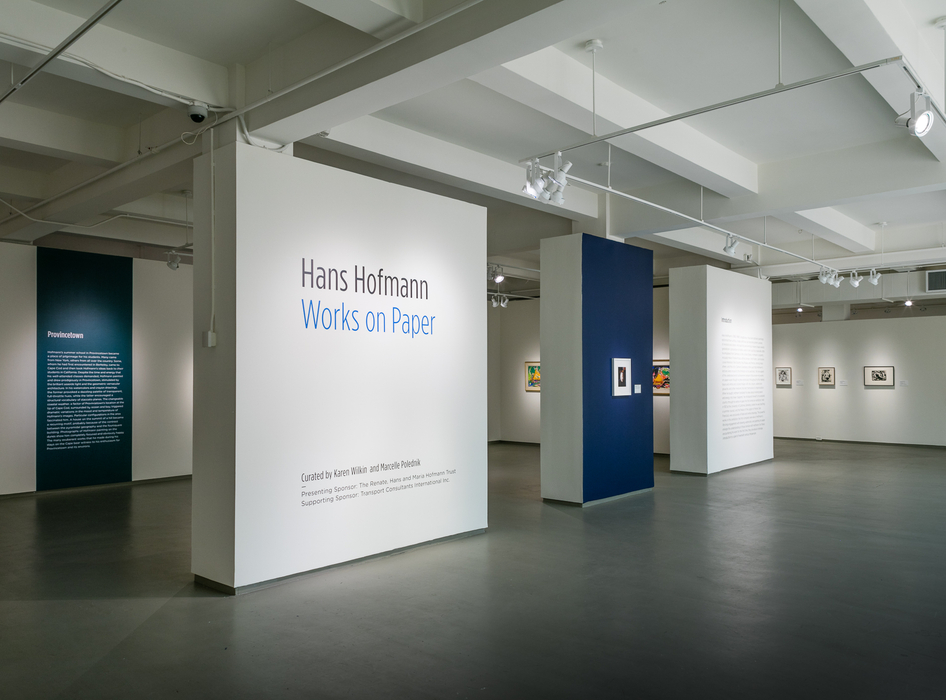
by Charlie Patton
Though he is considered one of the pioneers of abstract expressionism, during his long career the German-born painter-turned-U.S. citizen Hans Hofmann embraced many styles.
Born in 1880, he was first drawn to Impressionism. He then spent time in Paris in the early 1900s where he befriended Pablo Picasso, Georges Braque and Henri Matisse and embraced such movements as Cubism and Fauvism.
You can’t characterize him with one individual style,” said the Museum of Contemporary Art Jacksonville’s curator Jaime DeSimone. “He reinvented himself time and time again.”

BRATTLEBORO — Vermont artist Wolf Kahn has reaped many awards in a life as colorful as his work, but the 89-year-old just traveled to Washington, D.C., to receive his first medal. “It’s big and heavy, with a blue ribbon you can put around your neck,” he says. “I thought I was getting the Medal of Freedom the president gave to the vice president.”
Although Kahn didn’t win the same accolade President Barack Obama surprised Joe Biden with on Thursday, the master of vibrant oil paint and pastels received a hefty honor the same day: the U.S. State Department’s International Medal of Arts.
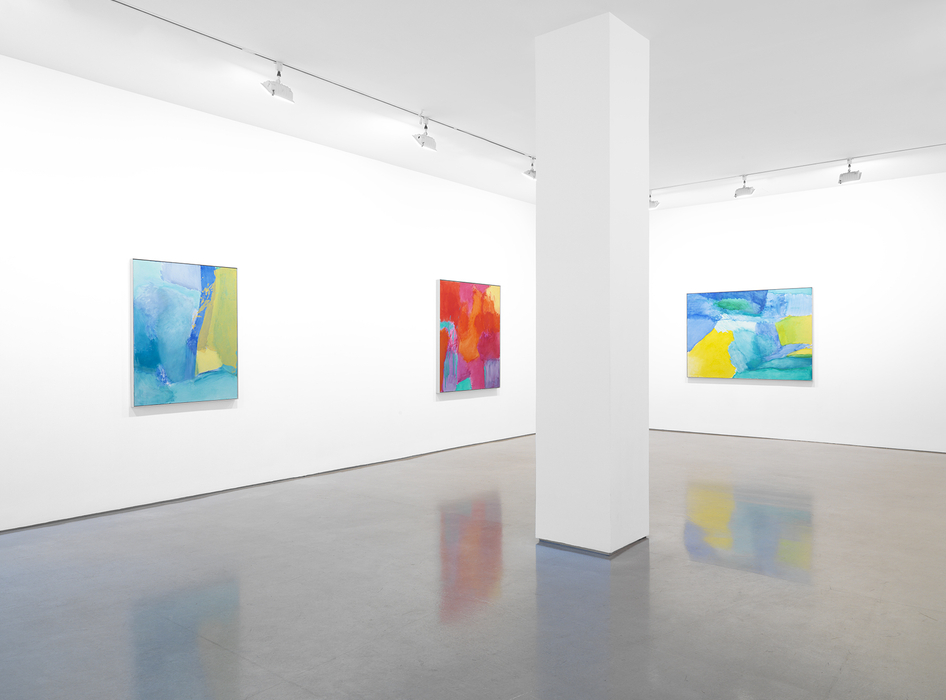
Ameringer | McEnery | Yohe in New York is hosting an exhibition of the works of artist Emily Mason, on view through 11 February 2017.
The exhibition presents a series of recent paintings by American painter Emily Mason (b. 1932). Known for works that celebrate the expressive possibilities of color, each painting by Emily Mason are impregnated with individual mood and captures specific emotional and chromatic temperature, invigorated with her nuanced touch. Sheets of vibrant hues with varying density fill across her canvases, as flat expanses merge with delicate clusters of pigment, creating deceptively complex compositions. Over six decades, the artist has explored through her distinctive style of lyrical, luminous abstraction, which reflects through her paintings executed in oil, carrying a sense of intriguing intimacy combined with uncompromising yet gentle intensity.
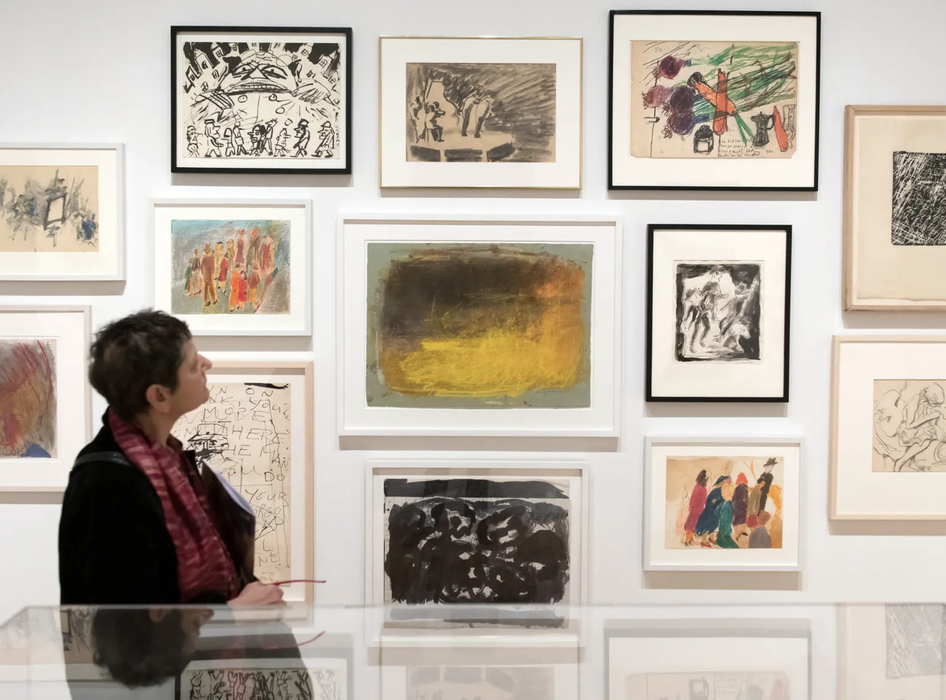
When a call went out online recently for an art world protest strike — “no work, no school, no business” — on Inauguration Day, more than 200 artists, most based in New York, many well known, quickly signed on. In numbers, they represent a mere fraction of the present art world, and there was reason to expect the list would grow. By contrast, in New York in the 1950s, 200 artists pretty much were that world, and one divided into several barely tangent circles.
That era’s cultural geometry has been badly in need of study, and now it’s getting some in a labor-of-love exhibition called “Inventing Downtown: Artist-Run Galleries in New York City, 1952-1965,” at the Grey Art Gallery at New York University. With nearly 230 objects, it’s big and has its share of stars. But it’s not a masterpiece display. It’s something almost better: a view of typical — rather than outstanding — art, of familiar artists looking unfamiliar, and of strangers you’re glad to meet. It looks the way history looks before the various MoMAs get their sanitizing hands on it: funky, diverse, down to earth, with things to teach us now.

by Roger Catlin
Gene Davis spent his career in newsrooms from the Washington Daily News to United Press International to the Fredericksburg Freelance Star, and even served a stint as a New York Times copy boy.
And while he took up abstract painting in the 1940s as a hobby, and was featured in a few local shows, he was never successful enough to devote his full time to art until, after 35 years in journalism, he finally turned to it 1968.

Sunday 6 November, 4 PM
195 Chrystie Street, New York, NY 10002
Please join 11R for a conversation between artists Douglas Melini and Brian Alfred with curator Daniel S. Palmer, on the occasion of Melini's current exhibition at the gallery, You Have To Peer Into The Sky To See The Stars.

by Cate McQuaid
We know painter Wolf Kahn for radiant colors and landscapes that are more about formal and tonal relationships than they are about place. But in the 1960s, Kahn dwelt in the shadows. His paintings from that period make up the last exhibition at modernist gallery ACME Fine Art, closing its doors after 15 years. Owners Jim Bennette and David Cowan will continue their art-consulting business.

As a Hollywood special effects artist, Patrick Lee has worked on such films as "Armageddon" and "Day Before Tomorrow."
But perhaps his greatest illusion is when Lee picks up a graphite pencil and draws a face.
You can see Lee's mind-blowing photo-realistic portraits in the "Deadly Friends" exhibit now up at the Huntington Museum of Art as the internationally known and shown L.A.-based Lee is the Walter Gropius Master Artist in October.
The fortysomething Montana-born, and Minneapolis College of Art & Design educated artist speaks about his work during a free public presentation at 7 p.m. Thursday, Oct. 13.
Lee will stay up on the hill this weekend to present a three-day workshop at HMA titled "Drawing Realism" from 9 a.m. to 4 p.m. Friday through Sunday, Oct. 14-16. Visit www.hmoa.org or call 304-529-2701 for workshop fee information or to register.
An exhibit of work by Lee continues on view at the Huntington Museum of Art through Dec. 30.

Isca is our seventh subject in a new SLICE Special Guest Series which introduces our readers to extraordinary, creative people ⎯ wherever we may find them.
Isca Greenfield-Sanders is an artist based in New York City. Her large scale mixed media oil paintings are found in the public collections of the Solomon R. Guggenheim Museum; Brooklyn Museum; Museum of Fine Arts (Houston); Victoria and Albert Museum (London); and Fine Arts Museum of San Francisco. Isca’s solo exhibitions include Haunch of Venison, New York and London; John Berggruen Gallery, San Francisco; Galerie Klüser, Munich; and Baldwin Gallery, Aspen. Her upcoming solo show will be at Ameringer Mcenery Yohe, New York in 2017. Isca has been featured in a wide range of publications, including Artsy, Art in Print, Modern Painters, Huffington Post, Artnet Magazine, ARTnews, Vanity Fair, The New Yorker, ARTFORUM, and Time Out New York. She graduated from Brown University with a double major in fine arts and mathematics. In 2001 Isca was a visiting artist at the American Academy in Rome. When she’s not working, you can find her with her husband, the painter Sebastian Blanck, and their two sons. Isca lives and works in New York City’s East Village.

I had a great conversation with American figurative artist Bo Bartlett. Bo’s paintings have a deep emotional and spiritual impact. He’s been painting for the last 40 years and it shows. Bo is highly revered and his work is collected around the world in private collections and museums. This is a long conversation and as we got deeper into it Bo talked about his experience of life and death and the underlying philosophy of his work and life.

by Leah Ollman
Amy Bennett makes paintings that call little attention to the elaborate process of their creation, but what may seem like conventional landscapes come with a back story that gives us far more to absorb and ponder than what’s visible on the wall.
For "Small Changes Every Day," her recent series at Richard Heller Gallery in Santa Monica, Bennett started with an 8-by-8-foot hunk of plastic foam and built a model of an undisturbed patch of verdant terrain. She painted a portrait of the land as seen from above, a handsome Eden dotted with ponds and etched with streams.

by Juliet Helmke
If not for rapidly rising Brooklyn rents, Amy Bennett’s last series of paintings might never have come to fruition. “Space- and money-wise, my husband and I felt pushed out,” the artist, who earned her MFA at the New York Academy of Art in 2002, explains. Hunting for a new place to call home, the painter found herself spending hours “just image-searching specific towns and looking down at them in Google maps.” By the time the couple and their young son decided on Cold Spring, in Upstate New York, she “had the impulse to build my own town.” But for Bennett, that meant doing so at 1:500 scale, or what she calls “Monopoly size.”

By Alexander Keefe
One’s initial impression of Yunhee Min’s new work, an intervention of poured paint and fluorescent light onto two long, normally transparent vitrines installed in the lobby of the Equitable Life Building—an iconic if somewhat long-in-the-tooth skyscraper in Koreatown—depended a great deal on how (or when) one first came across it. If the lights happened to be switched off (as they were at regularly timed intervals), Luminaire Delirium (Equitable Life or soft machine), 2015, displayed a milky, matte opacity, obstructing or deflecting one’s view of the vitrines’ interiors with turbulent, tainted whites, shadowed by hints of darker, more vivid colors swimming just behind. But if the cases’ hidden fluorescent tubes were set aglow, those same soured, opaque whites blazed into translucency, revealing brilliant layers of liquid color, and transforming this patch of corporate interior into a minor phantasmagoria of stained glass: Viscous, chemical yellows bled into inky blue-blacks and absinthe green; shades of red suggested a continuum between maraschino syrup and stage blood.

Paraphrasing Dave Hickey, who wrote a great essay that accompanies Michael Reafsnyder's latest catalog for his solo show at Ameringer, McEnery and Yohe, Michael is considered a radical, not so much because of how we look at his paintings, but more because he is concerned with how we look at paintings in general. He is a radical who for many years has revived Abstract Expressionism painterly traditions, in his own way.

The canvases of California-based painter Michael Reafsnyder pulsate with energy. Layers of abstract marks bear the traces of their making as paint is directly applied from the tube, weaving together to create dense, intricate topographies. It’s not always easy to enter the work: one must follow multiple strands of color before a narrative opens up and the viewer is absorbed by the sensual space Reafsnyder offers.
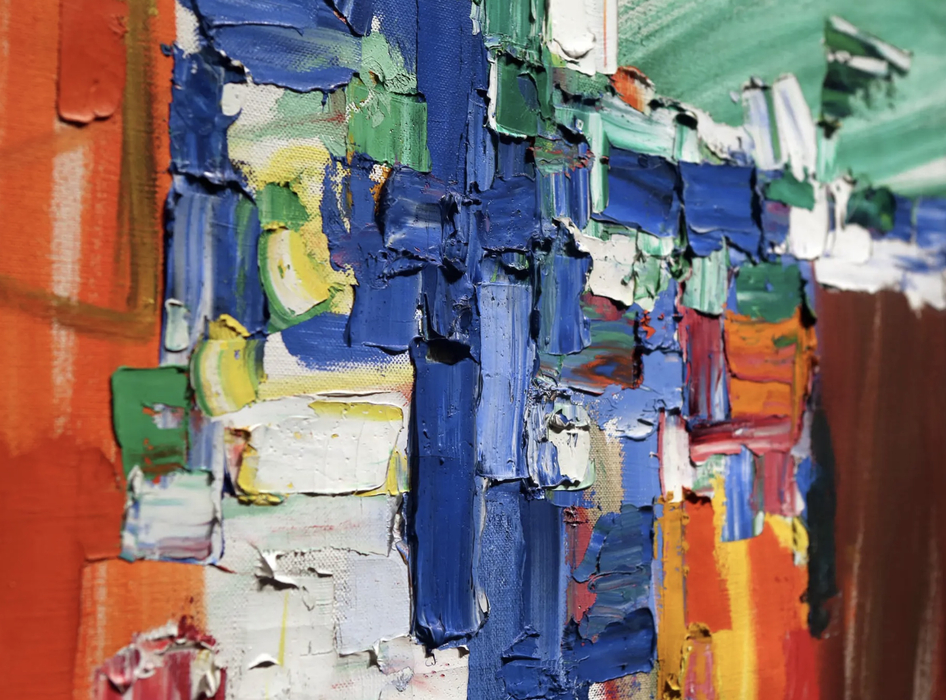
By Roberta Smith
GREENWICH, Conn. — You have to love Hans Hofmann for his exuberant late-blooming paintings, and for his eponymous art school, which formed one of the foundations of Abstract Expressionism. His paintings are, fittingly, usually seen as part of that heroic art movement, even though they replace its existential undercurrents with a stylistic capriciousness that sifts through European modernism with abandon.

Patrick Wilson’s paintings—a number of which are now on view at Ameringer | McEnery | Yohe in New York—benefit from a slow, prolonged, and introspective viewing. Precise compositions of squares and a considered rhythm of colors beckon the viewer past the painting’s surface and into a space that grows more and more palpable. Like some of life’s greatest pleasures, the appeal is visceral: “I want the paintings to be seductive like a really good meal and really good wine,” he recently told Artsy.

The work of Kadar Brock has made the critical success leap from in-demand to wait-list. Here, Fernando Mastrangelo checks in on how he’s navigating these new waters.

By Ed Schad
It is worth pausing, at least for a moment, to think of the differences between Monique van Genderen’s four super-large paintings in the opening gallery of Susanne Vielmetter and the paintings of the era about which van Genderen is pointedly thinking: the broad and massively scaled canvases of Abstract Expressionism. Notably, the limitations of the studio set parameters of van Genderen’s paintings. The canvases are so large that she was forced to work on them both on the floor and on the wall, not knowing what they would look like when stretched and extended at Vielmetter.

A Lesson in Geometry By Jean Cohen
Listen to Patrick Wilson, see his new paintings in Chelsea (at Ameringer | McEnery | Yohe) and take away some art history. What Wilson has done for 20 years—works of elegant color, flatness and right angles—may seem, at first, the offspring of other art born out of geometry since the mid-20th century. But paintings by Wilson look like no one else's.
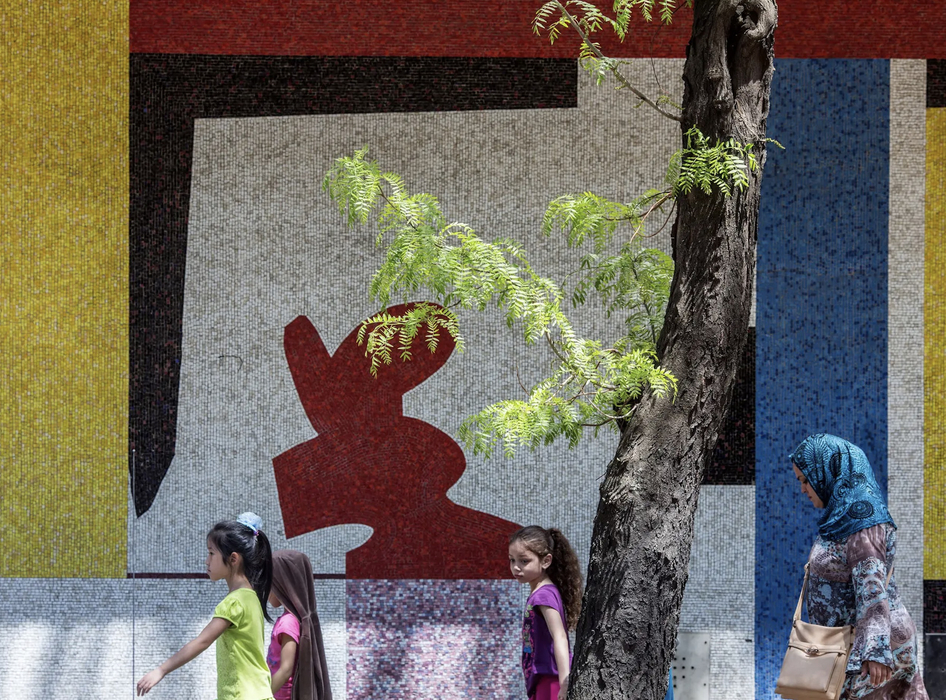
NEW YORK TIMES
By David W. Dunlap
GREENWICH, Conn. — There are several ways to appreciate the work ofHans Hofmann, an exuberant Abstract Expressionist who influenced generations of artists.
You could bid on a Hofmann at Christie’s. Just be sure to come with tens or hundreds of thousands of dollars. You could pick up a monograph, at no small cost. The Met has a number of Hofmanns on display, but the museum will suggest that you pay $25 to get in.
Alternately, you can take a stroll down West 49th Street in Manhattan, between Ninth and 10th Avenues, any day. Free.
There, along the ground-floor facade of the former High School of Printing, is a boldly scintillating 64-by-11½-foot mosaic mural designed by Mr. Hofmann and executed brilliantly in 1958 by L. Vincent Foscato of Long Island City, Queens.
New York’s treasury of public and semipublic artwork is so rich that it sometimes takes an out-of-town institution to remind us what we’ve got. In this case, it is the Bruce Museum in Greenwich, Conn., which has opened an exhibition called “Walls of Color: The Murals of Hans Hofmann,” curated by Professor Kenneth E. Silver of New York University.

John Seed Interviews David Allan Peters:
David Allan Peters, whose work is on view at Ameringer | McEnery | Yohe through April 19th, has been building heavily layered paintings that he carves into to reveal rich stratigraphies of color. Kaleidoscopic in their intensity, Peters' works are both intuitive excavations and explorations of pattern.
I recently spoke to David Allan Peters and asked him about his background, his education and his methods.

For Atelier Ace Issue, our series of limited edition art prints, we asked Brian Alfred, a multimedia artist originally from Steel City, USA, to envision an exclusive print for us and for you. With hard-edges, flat geometric forms and imagery borrowed from Circuit of the Americas in Travis County, Texas, Alfred uses speed, car racing and rituals of spectacle as avenues to explore contemporary ways of seeing.

Collector Profile: Harry and Margaret Anderson
When Hunk Anderson was a senior at Hobart College in Geneva, New York, in 1948, he and two enterprising classmates started providing meals for students who were hungry after dining-hall hours. Initially investing $500 each, the three partners grew Saga, their grassroots business, into the nation’s largest college food-service contractor. In 1962 they moved their headquarters to Menlo Park, California, adjacent to Stanford University.
As pioneering West Coast art collectors, Harry W. Anderson, who still goes by his beefy nickname, and his wife, Mary Margaret, known as Moo, have shown the same sort of American pluck and ingenuity that made Saga so successful. “We were absolute novices,” says Hunk, recalling a 1964 visit to the Louvre. “On our way home from Paris, we decided to see if we could become knowledgeable about art and put together a dozen paintings and sculptures.” They began a process of self-education that blossomed into a passion around which they have structured their lives for 50 years. The result: one of the most significant private collections of postwar American art in the world, with more than 800 works displayed throughout their ranch-style home in the Northern California Bay Area—built in 1969 with art installation in mind—and a nearby nine-building office campus designed in 1964. (Saga was sold to Marriott in 1986, but Hunk retained his office and continues to exhibit art throughout the hilltop complex, renamed Quadrus.)

Postcards from the End of the World: Brian Alfred’s Colorful, Cautionary Tales
Painter and digital artist Brian Alfred presents the world as a series of flattened fragments. Working from photographs, the Brooklyn-based artist digitally creates compressed, simplified images that capture the energy and anxieties of the modern world. Highway overpasses, empty offices, cityscapes, and even public figures’ faces are reduced into planes of flat color, which the artist carefully paints in taped-off portions, creating crisp images that sit somewhere between the handmade art of paintings, cartoon-like animation, and mass-produced perfection. His latest series, on view in a new show at Ameringer | McEnery | Yohe, takes automobile racing as its point of departure.

BRIAN ALFRED AT AMERINGER | MCENERY | YOHE
The New York based gallery Ameringer | McEnery | Yohe has announced a forthcoming solo exhibition by the Brooklyn based artist Brian Alfred which will present recent works under the title It Takes A Million Years To Become Diamonds So Let’s All Just Burn Like Coal Until The Sky Is Black. The solo exhibition will feature new images by Brian Alfred based around the exploration of automobile racing, his cropped abstract works capturing everything from the excitement of the cars and racing through to the global investment elements of companies that contribute the money to the races by including representations of oil slogans in his images. The exhibition at Ameringer | McEnery | Yohe, who last year presented a show of work by Wolf Kahn (see more in this video), sees Brian Alfred capturing small slices of time that aim to capture the emotions of watching the races.

Last month, Norwegian artist Margrethe Aanestad spoke with fellow artist Franklin Evans about his artistic practice and an upcoming exhibition he is organizing for the Prosjektrom Normanns in Stavanger. Below, Aanestad talks with Evans about his past projects, current work, and plans for coming to Stavanger.

The Canadian-born, Los Angeles-based painter is a master colorist who fetishizes the brushstroke to striking effect. For this exhibition of recent paintings she opted for a kind of reverse working method. Instead of creating sketches and studies for a larger painting, Van Genderen made the large work first and endeavored, on six smaller canvases, to recreate sections of that painterly abstraction that were as true to the original painting as possible. The small-scale “copies” could theoretically be reassembled to ape the original piece.

The "Summer of '14" is now a work of art. It is also a work in progress by Columbus artist Bo Bartlett. In the painting, two teenage girls are riding a bike oblivious to the cloud of smoke behind them. It was that kind of summer for Bartlett, who worked on the painting in his second-floor studio in the old Swift textile mill on Sixth Avenue. Things seemed to be going well, but he says he sensed impending doom. It struck when his 27-year-old son, Eliot, died suddenly. Recently, Bartlett sat down with Ledger-Enquirer reporter Chuck Williams to discuss his life, his work and his difficult summer.

The art world boomed this year, with some of the most renowned, international creatives in the field exhibiting their new works around the globe. The artworks and installations shown have each immersed audiences in an impactful and significant experiential context — monumental in scale, discipline, and material. From Olafur Eliasson’s expansive and multi-faceted exhibition in paris’ gehry-designed fondation louis vuitton to the esteemed photojournalistic imagery of Steve McCurry, 2014′s presentations blew us away. take a look below at designboom’s most popular articles this year about exhibitions.Markus Linnenbrink: Off the Wall

It has been a year of variety and surprises as to the range of shows we’ve covered. Any singular thing does not quantify the degree of how a show leaves a deep impression as it can be one tiny detail or a grand statement. Such trivial thoughts are best left to the wind as we have pinned down the Best of 2014 for all of our loyal and still growing readers. We raise a glass to 2014 for the year that was and here’s looking forward as AF keeps an eye always to the future.

New Exhibition Brings Abstract Expressionist Esteban Vicente’s Signature Touch to Light:
In the hallowed canon of American abstract expressionists, the name Esteban Vicente is rarely included. And yet the Spanish-born artist—who moved to New York in 1936—put down roots in this country amidst the members of the New York School, participating in their seminal exhibitions at the Samuel Kootz, Sidney Janis, and Charles Egan Galleries, earning representation by ab-ex patron Leo Castelli, and later going on to found the New York Studio School, where he taught for 36 years.

There’s a lot of product going on here,” I heard a woman say into her cell phone at the mega-art fair Art Basel Miami Beach 2014.
Still, even in the context of the vast amount of money changing hands at the Miami Beach Convention Center, where the main fair is taking place, there are pockets of resistantly antimaterialist art, and outside its walls some performance and film are to be found.
Some of the films were made available to me for advance viewing, and among them were many worth watching. Tabor Robak’s 20XX (2013) (Team Gallery) features a lush, unthreatening cityscape overrun by neon and Klieg lights and advertisements for media and game brands on the fantasy buildings. The resurgent Babette Mangolte’s Water Motor (1978) (Broadway 1602/Sikkema Jenkins) elegantly documents Trisha Brown’s loose-limbed dancing, with a seductive repetition of the sequence in slow motion. Leo Gabin’s Oh Baby (2013) (Elizabeth Dee/Peres Projects) is a low-tech, low-production value music video with some fun editing choices. Brian Alfred’s Under Thunder and Fluorescent Lights (2104) (Ameringer McEnery Yohe) is an animation involving allusions to landscape and architecture and a mutating, colored sun.

Brian Alfred, assistant professor of art, will exhibit his new animation "Under Thunder And Florescent Lights" on the 7,000-square-foot outdoor projection wall of the Frank Gehry-designed New World Center as part of Art Basel, in Miami Beach, Florida, Dec. 4 to 7. Art Basel stages the world's premier modern and contemporary art shows annually in Basel, Switzerland; Miami Beach; and Hong Kong. This is the second consecutive year Alfred has been selected for the Art Basel Miami Film program.

Selected by David Gryn, Director of Artprojx, the Film sector includes over 80 works by some of today's most exciting artists from Latin America, the United States, Europe, Asia and beyond.
Film presents works in both the outdoor setting of New World Center's SoundScape Park and on six touch-screen monitors within the newly designed Film Library at Art Basel's show.

Matisse Etc. (part 2)
Amy Feldman, Stanley Whitney, Bernard Piffaretti, Laura Owens, Michael Krebber, Matt Connors, Rebecca Morris, Patricia Treib, Lori Ellison, Franklin Evans)
How is it that someone who dreamed of “an art of balance, of purity, of serenity, devoid of troubling and depressing subject matter” became a source of relentless innovation and provided a map for the deconstruction (with Supports/Surfaces, Pattern & Decoration and artists as diverse as Simon Hantaï, Al Loving and Jessica Stockholder) of the very medium through which he hoped to achieve serenity? French scholar Rémi Labrusse has described Matisse’s “radical decoration” as the result of his staged confrontation between Western mimesis and Eastern decoration. Clement Greenberg, who dreamed of an avant-garde pastoral, attributed Matisse’s impact to “the paint, the disinterested paint.”

For this Los Angeles artist, the process of painting is highly physical, building up layers of color and then cutting away.
From a distance, David Allan Peter’s small-scale abstract paintings appear to buzz with dashes of vibrant color. These kaleidoscopic patterns may radiate over the entire panel in starburst formations, as in Untitled #13, or abutting triangles, as in Untitled #7, both made this year. But when seen up close, what look like Impressionistic brushstrokes reveal themselves to be tiny but precise indentations, carved into surfaces that have been built up with dozens of shimmering layers of acrylic paint.

In the paintings of Los Angeles-based artist Patrick Wilson, layered squares of color attain unbelievable levels of transparency and rich density. Wilson uses humble tools: he applies acrylic paint with a drywall knife or house paint roller to geometric areas of canvas edged by masking tape. Yet, in both large-scale canvases and smaller works on panel, the works’ spatial constraints seem only to distill and enhance the pigment.

Many of the artists I have selected are ones whom I already collect and admire. When I look at works to buy, I approach them with an open mind and go with instinct. Buy what you love and can’t live without!

Painting and photography have always had a complex relationship.
Conceived as an adjunct to painting in the earliest years of its development in the first decades of the 19th century, when many painters discovered how useful photographs could be in composing their canvases, photography quickly assumed an artistic presence and legitimacy of its own (albeit one that often still took its cues from traditional painterly modes of representation).

A mind-blowing painting exhibit titled "Photorealism:The Sydney and Walda Besthoff Collection" opens to the public Saturday (Nov. 8) at the New Orleans Museum of Art. Unlike many contemporary shows, it's not an exhibit that proffers a social concept or psychological sub-text.
It's an exhibit that's about painting the skin of a tangerine so perfectly that you can almost smell the tangy scent. It's about capturing those psychedelic landscapes that you see mirrored in the curves of a polished motorcycle. It's about the everyday "Through the Looking Glass" reflections in shop windows that seem to defy space and perspective. It's about the subtle allure of fluorescent lights, saltshakers and pinballs. It's about obsessive realism that's so real it's positively weird.

In her spare, monochromatic reliefs, collages, and sculptures, Spanish-born artist Rosana Castrillo Diaz conveys rich emotional and intellectual content. Testament to this is an exhibition of the San Francisco-based artist’s recent work, which is now on view at Ameringer | McEnery | Yohe in New York. Castrillo Diaz explains, “In this body of work there is a direct connection between memory, emotions, and the physical hand at work. Each mark is a feeling, a chord, each drawing a score witness to a moment in time, a mood, a place. In the silence and introspection engendered, the quietest gesture may very well be the loudest.” And indeed, her spare, all-white wall-mounted works are often contemplative, with moments of more riotous form.

39;With Artist Franklin Evans, An Immersive Experience,' by Cate McQuaid
Franklin Evans drops viewers into his own weird wonderland. Once you’re down the rabbit hole, you may be as awed and dismayed as Alice herself.
Evans has two shows up now, at Montserrat College of Art Gallery and Steven Zevitas Gallery. Walk into his installation at Montserrat, and it’s like stepping inside a painting. Colors and lines are everywhere: on walls, on the ceiling and floor; in corridors of vertical strips of colored tape. The same is true, on a more modest scale, at Zevitas.

Any combining, mixing, adding, diluting, exploiting, vulgarizing or popularizing of abstract art deprives art of its essence and depraves the artist's artistic consciousness. Art is free, but it is not a free-for-all. The one struggle in art is the struggle of artists against artists, of artist against artist, of the artist-as-artist within and against the artist-as-man, -animal or -vegetable. Artists who claim their artwork comes from nature, life, reality, earth or heaven, as “mirrors of the soul” or “reflections of conditions” or “instruments of the universe,” who cook up “new images of man”—figures and “nature-in-abstraction”—pictures, are subjectively and objectively, rascals or rustics. -Donald Judd, American Dialog, Vol. 1-5
Donald Judd was an exquisite contrarian. Call him a minimalist and he’d say, no, he wasn’t. To be fair, the term itself was widely rejected by artists working at this narrow-end of the artistic spectrum, and so it was only natural that what started out as an explanation of the work, became the rules that governed both its wider understanding and presentation. Looking back, what’s become clear is that the dialogues that emerged from this era were as intrinsic to the work (from the artist’s perspective) as the work itself. In part, it was the apparatus of distinction—the breaking with old ideas that felt stale and over-used. It was a carving down to the essential nature of an object that interested Judd, but it required sensitivity to some rules-based order.

Uniting painting with architecture, New York based artist MarkusLinnenbrink has transformed two exhibition spaces at the kunsthalle, nürnberg into a walk-all-over canvas. The floors, walls and ceiling of the german site have been pigmented with vibrantly-hued parallel streaks, traversing through the gallery’s rooms.The specific arrangement of the tones and their linear movement sees the line between two-dimensionality dissolve, simultaneously suggesting the idea of an endlessly expanding space. This color adaptation, which linnenbrink has titled ‘wasserscheide(desireallputtogether)’, evokes a wild and psychedelic sense of mobility, with an intensity that the viewer’s eye can hardly follow.

It was Heraclitus who proclaimed, “No man ever steps in the same river twice, for it’s not the same river and he’s not the same man.” This aphorism echoes through the work of Monique van Genderen. For her solo exhibition at Ameringer | McEnery | Yohe in New York, the artist has created the large-scale painting Untitled (2014), alongside six smaller paintings comprising extracts of the first. Together they form a body of work of continuous movement and endlessly shifting grounds.

Even just setting your eyes upon an optical illusion can be a disorienting experience. Just imagine what it would be like to be fully engulfed within one.
That's exactly what viewers find out upon entering Markus Linnenbrink's "WASSERSCHEIDE(DESIREALLPUTTOGETHER)," which recently showed at Germany's Kunsthalle Nuernberg. Bold streaks of fuchsia, navy blue, aquamarine and yellow swallow the entire windowless museum space, locking viewers in a mind-melting display of colors gone wild. The technicolor display, although rendered in acrylic paint covered in epoxy on resin, looks as if a box of super-sized Crayola crayons overheated and exploded all at once.

Brattleboro, VT -- Wolf Kahn views himself as a liberator. The contemporary American artist said he aims to bring "landscape painting up to date" by liberating color, being free in his application and just generally trying to be "more modern than most landscape painters are."
And this message of free expression is the basis of a lecture titled "Control and Letting Go," which he plans to deliver at the Brattleboro Museum & Art Center at 7 p.m. today. A book and memorabilia signing will follow. Kahn told the Reformer he typically gives a lecture at the museum once a year and always intends to give guests their money's worth. Reservations are $10 for the general public, $5 for BMAC members, and can be made by calling 802-257-0124, ext. 101, or visiting www.brattleboromuseum.org to reserve online.

Christopher Knight reviews Pia Fries' exhibition at Christopher Grimes Gallery for The Los Angeles Times.

Thanks to Wolf Kahn, the hills, forests, farms, and barns of southern Vermont may be seen in many of the world's finest art galleries, museums, and private collections. For nearly 50 years the beloved landscape painter, a leading figure in contemporary American art, has spent summers on a hillside farm in West Brattleboro. He has traveled the back roads and unmarked lanes of Windham County with pastels and sketchbook in tow, depicting the landscape in a signature style that hovers between abstraction and figuration. On Saturday, October 11 at 7 p.m., a week after his 87th birthday, Kahn will give a talk entitled "Control and Letting Go" at the Brattleboro Museum & Art Center (BMAC). Reservations are $10 for the general public, $5 for BMAC members. Call 802-257-0124, ext. 101 or visit www.brattleboromuseum.org to reserve online. A book and memorabilia signing will follow.

The paintings of Monique van Genderen are something to move into: spaces defined by shape, color, depth, and motion. Van Genderen, a self-described nonobjective abstractionist, is hard to pin down to a particular genre or art movement, although her work touches on quite a few — including Abstract Expressionism, color-field painting, and Abstract Illusionism — while remaining in a class by itself. “I am working with a lot of elements of illusion, specifically conceptual illusions, playing with people’s expectations of what they’re looking at,” she told Pasatiempo. “Sometimes I landed in the color-field genre because I was making more reduced paintings with shapes I collaged together. But I’m really attempting to make every painting pretty different.” With notable, well-received exhibits on both coasts under her belt, van Genderen, a Los Angeles-based artist, comes to Santa Fe for her inaugural show at TAI Modern.

Entering Ameringer McEnery & Yohe, those who have followed Franklin Evans’s work over the last 10 years will recognize the artist’s application of readily accessible, process-spun materials to the gallery walls and floor. Materials that might otherwise be pulled from a painter’s trashcan, including paint-scuffed masking tape, clippings from photo albums and incomplete works on paper, are positioned in bursts of action that may at first seem disorganized. The solo exhibition, “paintingassupermodel,” is Evans’s first at Ameringer and succeeds as a personal rumination on Yve Alain Bois’s 1990 bookPainting as Model. Celebrated abstract paintings by Matisse, Mondrian and Newman, which Bois discusses in his book, make appearances in the exhibition.
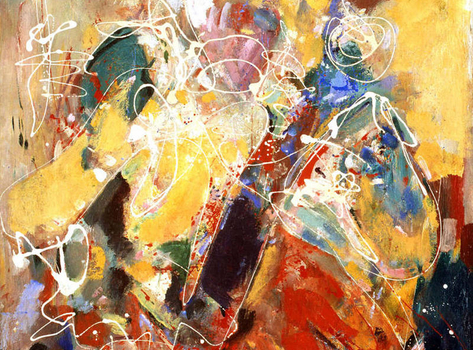
German American Abstract ExpressionistHans Hofmann credited his time teaching painting at UC Berkeley in the early 1930s for his "start in America as a teacher and artist."
Hofmann thanked the university with a gift of nearly 50 paintings representing the breadth of his life work, from Surrealist-influenced compositions to more physical and abstract images. The paintings are on display at the UC Berkeley Art Museum through Dec. 21 and represent the largest collection of the noted painter's work in any museum.

Franklin Evans, “paintingassupermodel,” at Ameringer | McEnery | Yohe through August 1
Understated and subtle are two adjectives that will never be applied to Evans’s work. For his debut at this gallery, he cannibalizes the entire space — including the floors — creating a massively dense, referential installation that’s terrifically entertaining to get lost within. Paint-spattered tape, computer print-outs, enlarged-and-stretched digital photos, and architectural schematics cover the walls; Plexi vitrines hold photographs and tiny sculptural odds-and-ends.

Daily Pic: Franklin Evans Shows Us Painting Today
This is a view into a manic installation called “paintingassupermodel,” by Franklin Evans. It’s now filling the Ameringer McEnery Yohe gallery in New York. The title is a clever updating of “Painting as Model,” the name of a famous 1993 book by art historian Yve-Alain Bois, sped up to the pace of the 21st century. There’s not even time for a break between words.
Evan’s installation does a pretty good job conjuring the feel of art as it is now experienced, as a ceaseless barrage of image and information and commerce that we’re supposed to take as-is, without too much processing or doubt. “Paintingassupermodel” levels the playing field between Matisse and Photoshop. What I couldn’t decide, as I took in the piece, was whether its frantic complexities acted as an invitation to dig deep to figure them out, or to skim along across their surfaces.

Yve-Alain Bois’s book Painting as Model was written twenty-odd years ago and continues to be an important text, providing conceptual fodder for many contemporary art practices. A case in point is the current exhibition of painting and installation by the artist Franklin Evans where a physical copy of Painting as Modelsits up front and center on the gallery floor while material unleashed from the book orbits about the space.

The studio is where it's at - that's ground zero where the artist's thought process and experimentation explode into fruition. Now what if you take that investigation into the gallery interior and set it free all over? AF walked into the solo exhibition of Franklin Evans for paintingsassupermodel last week to witness the full color explosion come to life. Maybe there was no Gisele Bundchen or Chanel Iman aka Super Models present but art was definitely making itself known in Super Sized doses.

James Kalm visits the exhibition Franklin Evans: paintingassupermodel at Ameringer | McEnery | Yohe, New York, on view through 1 August 2014.
Kalm notes: "Franklin Evans has been receiving much critical attention for his blurring of painting, the studio and installation. Using the rubbish of his studio practice, particularly used masking tape and paint stained cloths, the artist fills the gallery top to bottom with colorful remnants, wall paintings and enlarged photos from previous installations, thereby presenting these projects as accumulations not only of materials, but also of memories.

As part of the launch of its new office, Morrison & Foerster commissioned prominent New York artist Markus Linnenbrink to produce eight original 9-X-42-foot paintings for the space. Each of the oversized works will adorn one of the firm’s eight elevator lobby areas. The paintings reflect Linnenbrink’s trademark style of using the medium of acrylic and a myriad of pigments to form a full spectrum of colors on wood panels.

The earliest painting on view in Wolf Kahn: Six Decades is a large landscape-derived abstraction from 1960 titled “Into a Clearing.” It features a loose, pulsing welter of brushstrokes that coalesce into lush zones of breathing, blooming color. “Weaving Gray and Yellow,” another oil on canvas completed fifty-four years later, and also on display in “Six Decades” shows a similar gestural approach but with added notes of linearity and a little less painterly vapor. Consistently in love with landscape — and the idea of landscape as an abstraction — Wolf Kahn has lovingly built a very vivid and beautiful oeuvre since first exhibiting his paintings at the Hansa Gallery, one of New York’s first co-op galleries, nearly sixty years ago.

Curated by Li Zhenhua, director and founder of Beijing Art Lab, the Film sector presents an exciting program of films by and about artists.
Screenings take place in the agnès b. cinema at the Hong Kong Arts Centre.

At 86, Wolf Kahn is still a firecracker. The painter — who has spent the majority of his life in New York, and who is known for vibrantly colored landscapes and nature scenes — is the subject of a six-decade retrospective on view at Ameringer McEnery Yohe through May 31. “The earlier the painting is, the better it seems to me to be,” Kahn deadpanned, thinking back to some of the canvases he produced in the early ’60s. “I think I’ve gone downhill ever since.” On a more serious note, he’s proud of himself for not resting on his laurels: “Here I am, still trying to do things that I don’t know how to do, strike out in new directions. I think that’s very healthy, and I consider myself fortunate.”

Timepaths, a process-based multi-media installation by Reno-born artist Franklin Evans, served as the inspiration and the backdrop for RENO Magazine’s spring fashion spread. The installation, housed at the Nevada Museum of Art through April 20, investigates the complex paths Evans has taken as a contemporary artist.

Many words have been spilled recently, by artists in particular, over the perennial question: New York or Los Angeles? On the occasion of Kevin Appel’s first solo exhibition in NYC since 2009, and his first ever with Ameringer | McEnery | Yohe it seems we may have found one of the more levelheaded voices yet to enter the conversation. “Los Angeles has always had a bit of an identity crisis, partially due to the external view of L.A. as having this superficial mentality tied to the film industry,” explains the photographer-cum-painter, an Angeleno for all his life save for a brief stint studying in Manhattan. “It doesn’t have a long lineage of a canonical or intellectual history, as opposed to New York.”

Nearly 50 visits in and I finally made it across the river to draw, spending the day with Franklin Evans in his studio in the Lower East Side a couple of Saturdays ago. After making my way down Bowery, I looked up to see short neon strips of tape and painted pieces of paper that were missing their center squares, dangling from the inside of windows of a second floor apartment building. I knew I was in the right place. I had the overwhelming feeling of having been in this studio before when I walked in to his space. I soon realized I was thinking back to the strong impression his elaborate mixed-media exhibition at Sue Scott Gallery had on me in the spring of 2012. It was a memorable glimpse into the artist's mind, studio, and process. Evans was breaking the fourth wall with that exhibition and remembering it made me even more eager to begin my drawing.

If Patrick Wilson tossed a pebble into a pond, the ripples that emanated from it would probably take the shape of perfectly formed squares or nicely proportioned rectangles. That is the image his exhibition, “Steak Night,” leaves the viewer: an impossible change to the laws of nature that brings you face to face with a world more beautiful that the real one.
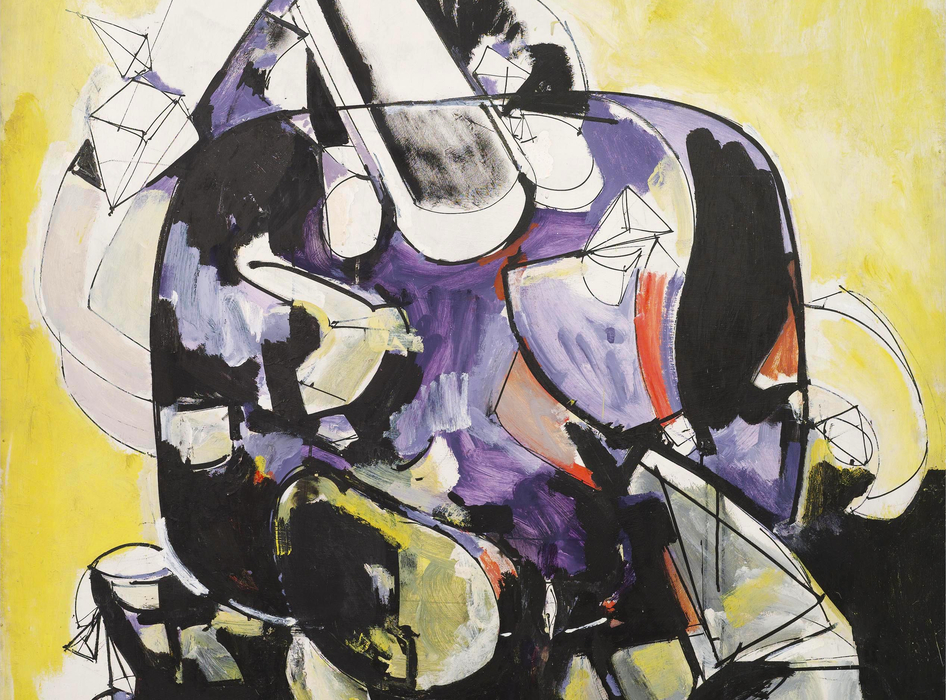
In the realm of high-modern abstract painting, the color purple rarely gets the spotlight. The hue doesn't have its own Picasso phase, like rose or blue. And let's face it: Jackson Pollock's "Lavender Mist" is light on the lavender and heavy on the black and white. So it's exciting to watch Hans Hofmann play with purple and give it center stage in a pair of works on view right now at Ameringer | McEnery | Yohe.

Made between 1961 and 1985, the eight enormous acrylic-on-canvas paintings by Gene Davis in this show - all composed of vertical bands and stripes - testify to the artist's devotion to color. "To understand what my painting is all about," Davis once said, "look at my painting in terms of individual colors...select[ing] a specific color such as yellow or a lime green, and take the time to see how it operates across the painting." When one looks at Yellow Jacket, 1969, one notices yellow used in a variety of ways: On the right, narrow vertical lines of yellow are tightly interspersed with orange lines; on the left, blue and pink stripes are sandwiched between relatively wide bands of lemon; and in roughly the center, medium-size gold stripes emerge from within a broad swath of lime green. The result is a dazzling irregularity - the yellow takes on a variety of qualities, multiple personalities. Larger, toneless vertical lines on either side contain the painting more or less in half. The work's eccentric yet reasoned structure, coupled with the colors' various tones and intensities, makes for an ingeniously polyphonic musical painting.

There are worse things you could do with The New York Times than cut blocks of color out of its photos and advertisements and glue them together, as Suzanne Caporael does, into elegant, postcard-size, abstract collages. In 028 (like calculus), five superimposed sections make a neat white frame around a vertical bicolor of violet-black and pale blue. A golden yellow curver sinks down from the top toward a white square with a muddy purple corner folded in. A slightly muddled edge above the darker half, three round bumps at the bottom, faint white lines where the framing newsprint covers another piece's edge, some type on the verso just barely showing through, and the partial date - the piece was made this year, sometime after the 10th of a month ending in "y" - all pull together, as curated accidents and gracefully understated decisions.

On January 15, 2014, the Montclair Art Museum will celebrate its centennial. On view will be a collection-based exhibition throughout the Museum and its grounds, with 100 works reflecting its rich cultural history and legacy.

In a series of conversations held over the past summer months and into a fall museum installation, artist Franklin Evans spoke with artist and Art Books in Review editor Greg Lindquist. The two discussed the relationships of Evans’s process-based painting installations to Internet media, digital technologies, and the related phenomena of discontinuous focus. Evans’s solo exhibition timepaths opened at the Nevada Museum of Art on October 5, 2013 and will remain on view until April 20, 2014.

Look at the painting in terms of individual colors," said the Washington painter of vertical stripes, Gene Davis (1920-1985). "In other words, instead of simply glancing at the work, select a specific color such as yellow or a lime green, and take the time to see how it operates across the painting.... And then, you can understand what my painting is all about." Usually—at least with me—it's annoying for an artist to tell viewers how to look at his work. But with Mr. Davis, and this deliciously select show of a half-dozen large paintings from 1961 to 1980, the instructions are entirely tolerable.

Devoted exclusively to papier collés and related works on paper from the 1940s and early 1950s by Robert Motherwell, this exhibition features nearly sixty artworks and examines the American artist's origins and his engagement with collage. The exhibition also honors Peggy Guggenheim's early patronage of the artist. At her urging, and under the tutelage of émigré Surrealist artist Matta, Motherwell first experimented with the papier collé technique. He recalled years later: "I might never have done it otherwise, and it was here that I found...my 'identity.'" By cutting, tearing, and layering pasted papers, Motherwell reflected the tumult and violence of the modern world, establishing him as an essential and original voice in postwar American art. Motherwell initially produced both figural and abstract collages, but by the early 1950s Surrealist influences prevalent in these first works had given way to his distinctive mature style, which was firmly rooted in Abstract Expressionism. "Robert Motherwell: Early Collages" will be presented at the Peggy Guggenheim Collection, Venice, May 26 - September 8, 2013, before traveling to its second and final venue, the Solomon R. Guggenheim Museum, September 27, 2013 - January 5, 2014.
This exhibition is organized by Susan Davidson, Senior Curator, Collections and Exhibitions, Solomon R. Guggenheim Museum.
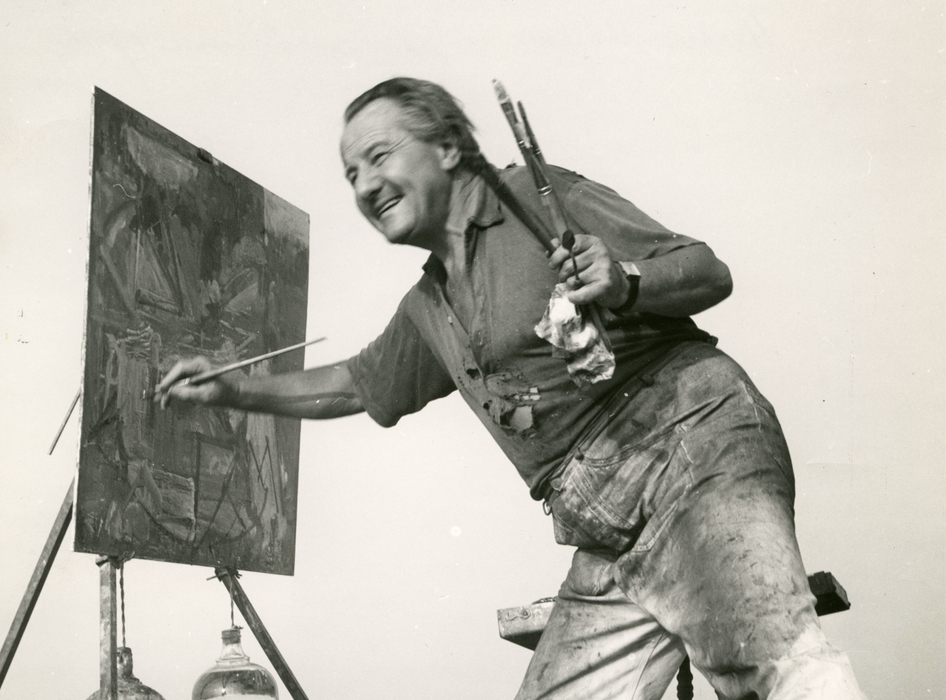
Known best as an inspiring teacher before coming to America, he continued to teach in the U.S. and to codify the principles of his teaching in his writings, exerting considerable influence. The alumni of Hofmann’s Eighth Street school include such notable figures as Michael Goldberg, Alfred Jensen, Wolf Kahn, Lee Krasner, Robert de Niro Sr., Red Grooms, Paul Resika and many more. Hofmann’s lectures on art had a profound effect on some of the most significant members of the New York cultural scene; Arshile Gorky attended them and the critic Clement Greenberg always said that hearing Hofmann’s talks in 1938-39 was vital to the formation of his own uncompromising aesthetic. Yet engaged as Hofmann continued to be by teaching and writing after leaving Germany, and influential as his instruction and theories were, the most notable aspect of his American years was his refinding of his original identity, not as a teacher and theorist, but as a deeply engaged maker of art and a master manipulator of color.
Karen Wilkin —

The late Helen Frankenthaler famously "departed" from Jackson Pollock with her early stain paintings in the 1950s, but she kept on making departures for the rest of her long, innovative career.
When Helen Frankenthaler died in December 2011, two weeks after her 83rd birthday, most tributes to her invoked "Mountains and Sea," the delicately colored, luminous stain paintings that she made in 1952, as a precocious 23-year old, a work that has come to define her almost as narrowly as "The Scream" defines Edvard Munch. Just about every article recounted, as well, the story of the powerful effect "Mountains and Sea" had on Morris Louis and Kenneth Noland, when they saw the picture in Frankenthaler's studio on a 1953 visit to New York, almost everyone quoted Louis' description of the seminal painting's young author as "the bridge between Pollock and what was possible."

Esteban Vicente died in 2001, having lived to the ripe age of ninety-seven and worked to the end. It was not a bitter end, as his last paintings – thirteen of which were on view in this exhibition – indicate. Made between 1998 and 2000, these bright, colorful abstractions were inspired by the artist’s garden in Bridgehampton, New York, where he lived and worked. Among the flowers he planted were phlox, helianthus, foxgloves, daisies, and morning glories, all apparently in great abundance and carefully cultivated. Registering the effect of sunlight hitting the blossoms, the paintings are a sort of tachistic patchwork of quietly lyrical, atmospheric hues, sometimes amorphously spreading, sometimes striking and concentrated, like the red patches that suddenly appear as spontaneous accents in "Untitled," 1999.

Ceramics are undergoing a revolution in the contemporary art world - but nowhere more so than in Los Angeles, where clay has a particularly resonant history.

In May of 2012, Jack Flam, Katy Rogers, and Tim Clifford traveled to Verona, Italy to complete their decade-long project of researching and publishing "Robert Motherwell Paintings and Collages: A Catalogue Raisonné, 1941-1991." Over the course of a month, the three authors worked with master printers at Trifolio, overseeing the printing process of the three-volume set. This video follows the finishing stages of production on the catalogue raisonné from proofing the color to binding the final product.

The Lookout: A Weekly Guide to Shows You Won't Want to Miss
With an ever-growing number of galleries scattered around New York, it's easy to feel overwhelmed. Where to begin?
Here at A.i.A., we are always on the hunt for thought-provoking, clever and memorable shows that stand out in a crowded field. Below is a selection of current shows our team of editors can't stop talking about.
Suzanne Caporael at Ameringer | McEnery | Yohe, through Dec. 22 The various ways we mediate our world have long been the concern of painter Suzanne Caporael, who can give the most esoteric taxonomies for processing nature, in particular, a lyrical twist. Her means are whatever it takes - be that abstraction or representation, leaving her "signature style" tricky to summarize. In her multifaceted show "Seeing Things," she considers the gap between perception and cognition in angular and gridded abstractions, delicate landscapes and veiled allusions to such masterpieces as Cezanne's portrait of his wife and Watteau's "Pierrot."
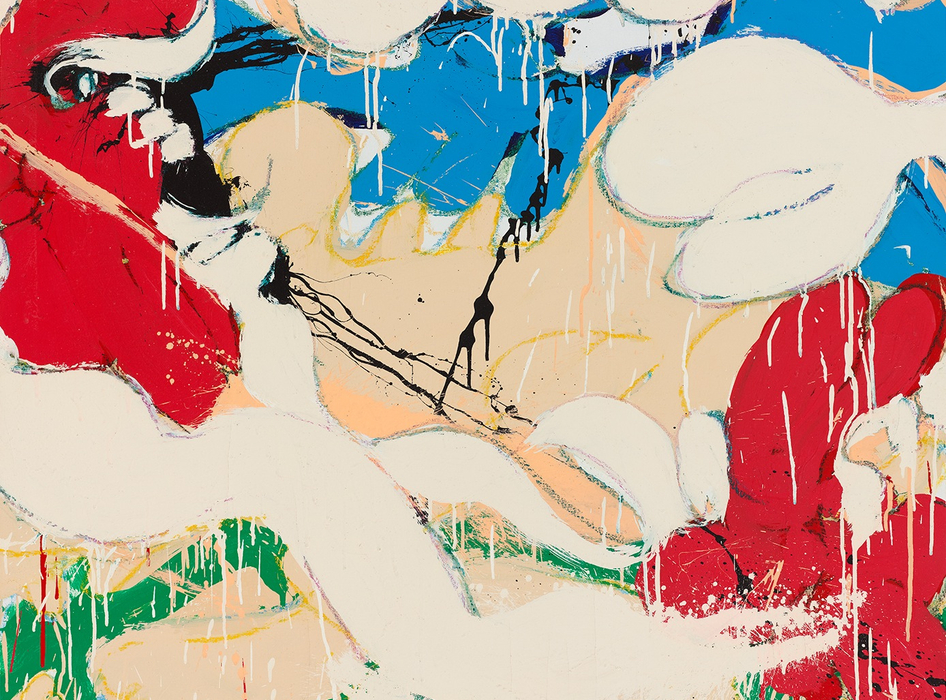
Norman Bluhm is the greatest Abstract Expressionist painter you've never heard of. Or if you have heard of him, you're part of a select group of aficionados who appreciate the multifaceted, challenging work of a painter who refused to be pinned down to any one school or style and kept working regardless of the shifting tides of the market and art-critical opinion.
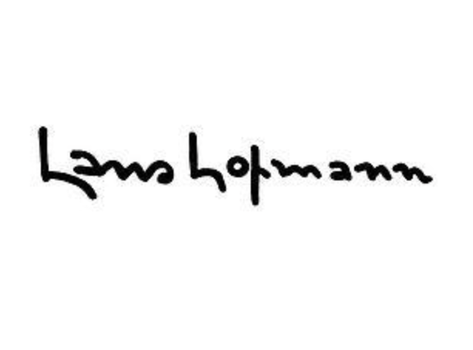
Making a picture is almost a physical struggle," says Hans Hofmann, whose prodigious nervous energy is communicated in the expanding dimensions and exuberant colors of his abstractions. Working with astonishing speed, never sitting down, constantly in motion between his palette and his easel, applying his paint with broad, lunging gestures, Hofmann often finishes a painting in a few hours.

Los Angeles-based critic David Pagel grouped six painters and three sculptors from the West and East coasts inspired by the "Stone Soup" fable, titling it "Stone Gravy." Exhibiting the austerity of abstract formalism (represented by stone), leavened and enriched by sensory overloads of color, texture, and pattern (standing for the gravy), were the painters Brad Eberhard, Annie Lapin, Kim MacConnel, Allison Miller, Richard Allen Morris, and David Reed. Sculptors Polly Apfelbaum, Ron Nagle, and Matt Wedel, by contrast, argued for expanding sensory delight beyond the strictures of wall-mounted rectangular planes.

One usually associates the name of Wolf Kahn with New England landscapes, but his economically painterly treatment suits the urban fabric as ably. Ameringer | McEnery | Yohe has put together a show of his New York images to prove it.

Complicating things does not necessarily enrich them. But the newly complex work of Los Angeles painter Patrick Wilson at Marx & Zavattero extends the range of subtlety and ambiguity that has always given his art substance.

This mini-survey of Kim MacConnel's unstretched fabric paintings from the 1970s, and a terrific one from 2004, is the first of four shows at Salomon this spring collectively titled "American Responses: Pleasure, Reverence, Heart, Home." The successive exhibitions feature work by MacConnel, Ned Smyth, Dickie Landry and Tina Girouard, artists from different parts of the country who were making seminal work in the 1970s and '80s, and who are still active.

These small collages are composed by the painter as studies for her larger canvases, but it’s hard to imagine that their successors could trump them in terms of spontaneity or sheer joie de vivre. Made from pieces of newsprint, in saturated hues of magenta, lime, orange, and navy, they are winningly simple with a powerful graphic punch—the abstract cousins of Saul Bass’s posters circa “Anatomy of a Murder.” But that mod sixties vibe is belied by the newspaper dates; the oldest is from 2008. Through April 21.

Hammersley's paintings are abstract, richly colored and possess a quietly resolute determination. They do not represent anything in the traditional sense; rather they suggest complex emotional states and patterns of thought. Their seemingly clear and simple compositions belie their pictorial richness. Hammersley's abstractions came out of drawing. While teaching at Jepson Art School in Los Angeles, he found "a delicious stone" to create intimate lithographic prints (each 3 x 3 inches) based on a grid structure of 16 squares. He introduced compositional elements one by one, altering line, form, color, etc. to discover how each would react to the other. These small prints held the seeds for his later geometric paintings. After leaving Jepson in 1951, Hammersely recalled that he "bumped into hunch painting by accident," inspired by the shapes that he saw in the figure and in still-life, reducing them to elemental form. These were intuitively derived compositions that gained the attention of curator, Jules Langsner, who included Hammersley in the landmark 1959 exhibition, Four Abstract Classicists, at the Los Angeles County Museum of Art.
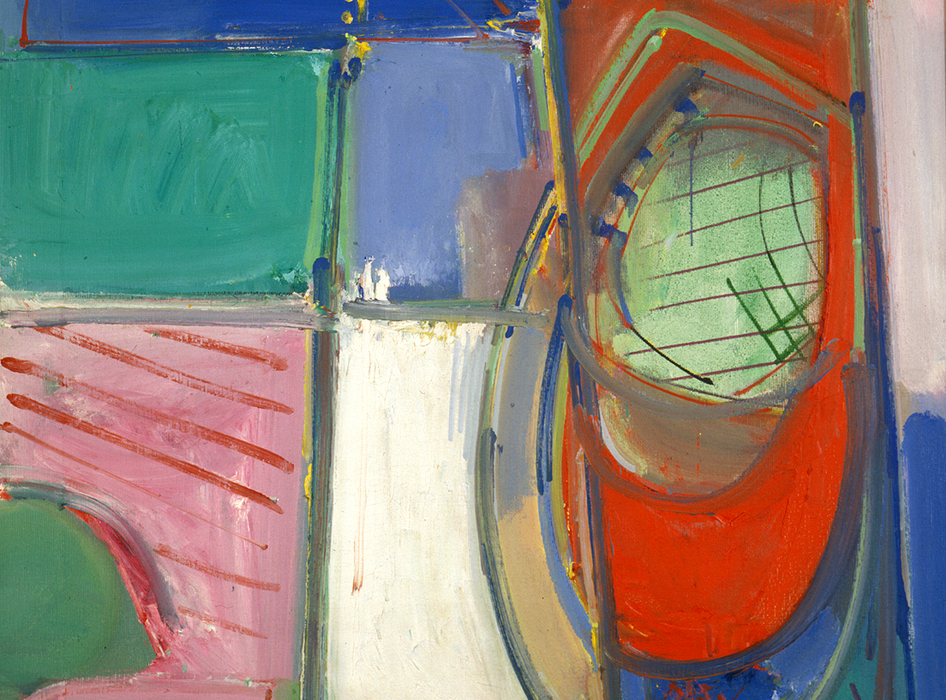
Two exhibitions open this Thursday at Ameringer McEnery Yohe. Both of them merit your attention and attendance. ... The other is "Hans Hofmann: Art Like Life is Real." The gallery continues, "In his essay for the exhibition catalogue, William Agee describes Hofmann as going against the grain of the artistic canon of the day; 'His art was too big, too bold, to be encapsulated in a few years after 1945, the years we generally identify as the heyday of abstract expressionism.' Instead, Hofmann preferred to search for what he believed to be the real in art, stretching it beyond the confines of a signature image. This exhibition offers a selection of his divergent poly-referential works spanning a period of 1944 through 1962." Don't maintain a discrete distance from Ameringer | McEnery | Yohe this week - seek instead to close it.

Two exhibitions open this Thursday at Ameringer McEnery Yohe. Both of them merit your attention and attendance.
One of them features the work of Suzanne Caporael. "First and foremost, Caporael is a painter," says the gallery. "While maintaining a discrete distance from the art world in various rural havens, she has nonetheless earned herself a place in the field of contemporary painting. For nearly thirty years she has allowed her avid curiosity to guide her through a variety of disparate areas of study, most of which take two to five years of research and manifest as paintings while Caporael delves more deeply into her sources. These include eighty paintings representing thousands of miles of back roads traveled in the U.S. over a period of four years. Always remaining more allusive than descriptive, the work balances substance and subtlety with aesthetic rigor."

Patrick Wilson is on a self-professed quest for beauty in the realm of color and form. His search takes him back to 20th-century abstract colorists and reaches forward into contemporary, technology-dominated, urban life. Such rigorous study of color relationships, careful observation of artificial and natural light, and references to technological motifs yield complex and sublime results.

Throughout the history of Modernism, the reputations of many painters have become known through their association with groups of like-minded individuals. Some of these associations are casual while others become definitive movements involving exhibitions and critical dialogues, at times using a manifesto or style of presentation as a means to communicate their aesthetic or to reinforce their social, political, and conceptual aspirations. Art movements have a temporal role in the history of art. They exist for a relatively short duration before members spin off in other directions.

The hard-edge abstractions of the painter Frederick Hammersley (1919-2009), who began his career in Los Angeles and later moved to New Mexico, have never enjoyed much of a New York presence. They were last seen in bulk here in a two-person exhibition at Artists Space in 1987, a year after the artist’s only New York gallery show and more than 20 years after his rare inclusion in a New York museum show: the Op-Art-centric “Responsive Eye” exhibition at the Museum of Modern Art in 1965.

The fall art season is in full swing, and there is an overwhelming amount of painting on display at galleries throughout the United States. I expanded my usual Must See list from ten to twelve exhibitions, but I could have easily selected more. As always, I primarily focused on emerging artists, although more established figures such as Susan Rothenberg and Lari Pittman are on the list with impressive new bodies of work.

Photorealism does not especially intrigue me, but in Patrick Lee's work, the technique is just the starting point for further revelations. Lee's graphite portraits of men are meticulous down to the very pores that sprout whiskers. The figures are set in a style reminiscent of the early 1900s, with heads floating in a limbo of whiteness, and I am reminded of the decades old black and white photos of my grandmother's family. Yet these portraits are startling contemporary insights into the society of men. Bald heads, scars, tattoos and ethnically diverse, these men virtually wear the stories of their lives on their necks, faces, and heads. In a culture where youth is trumpeted no matter the class or color of the individual, it's an interesting relief to see men, instead of kids, depicted here. These are men who clearly have lived lives of intensity and peril and are part of a society that signals their wounds with physical visuals.

Patrick Lee’s gorgeous portraits of tough young men are great works of art because they entice you to imagine what it might be like to live in someone else’s skin.

Three recent exhibitions in the New York area offered an opportunity to assess the career of the late Spanish-born Abstract Expressionist Esteban Vicente (1903-2001).

Wolf Kahn’s recent paintings, continuing his long engagement with rural New England as fodder and muse, still manage to startle and delight.
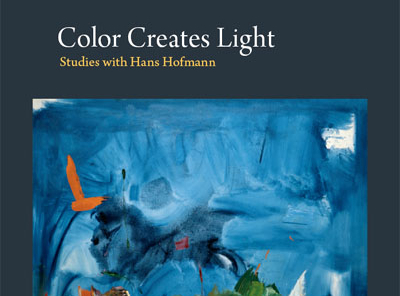
Artists tell the story of a charismatic teacher and his ideas in Color Creates Light: Studies with Hans Hofmann by Tina Dickey, recently released by Trillistar Books. The author will travel to New York in early May for two book signings: on May 3 at 8pm, a signing at Spoonbill & Sugartown Books in Williamsburg, Brooklyn, and on May 5 from 5-7pm, a Cinco de Mayo signing at Ameringer McEnery Yohe in Chelsea.

Esteban Vicente: Portrait of the Artist,” at the Parrish Art Museum in Southampton, starts with one artist, but quickly — and thankfully — opens up into one of these broader, more inclusive chapters. Vicente (1903-2001), a Spanish-born artist who lived most of his life in New York, was best known for his collages, and a big red abstract-floral one greets visitors at the entrance. A watercolor by his contemporary Philip Pavia, “Freefall No. 2” from 1959, hangs nearby, however, turning the installation immediately into a dialogue.

David Frankel reviews Pia Fries' Loschaug paintings for the April 2007 issue of Artforum.

Pia Fries' exhibition at the Josef Albers Museum is reviewed by Hans Rudolf Reust in the January issue of Artforum.






























































































































































































